101 Best Leadership Books You Should Read in 2019 and Beyond
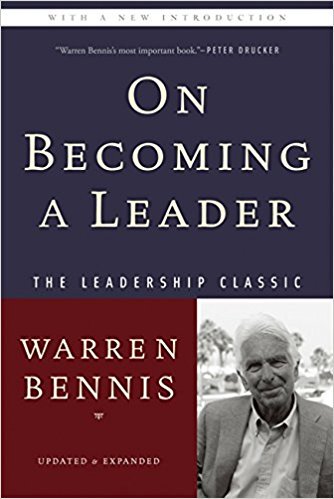
44 min read ⌚
There are two kinds of people: those who are led and those who lead them.
We’re guessing you’re here because you want to be one of the latter.
News flash:
It’s both a thorny path and a hell of responsibility once you get to the end!
So, just like Frodo, you better find a good fellowship before you embark on your journey.
To help you, we’ve rounded up the usual suspects.
The top leadership books are here – just for you!
The 101 Best Leadership Books List
(Click a title below to go to the respective shelf)
1. The Basics and Laws of Leadership
2. The History Doesn’t Create Leaders: Leaders Create History
3. The Different Types of Leaders and Leadership
4. The Leadership Strategies and Styles, Tactics and Theories
5. The Let the Ladies Lead
Wildcard
CONTENTS
1. The “Basics and Laws of Leadership” Shelf
Becoming a leader is not the easiest thing in the world. These twenty books, however, certainly make it seem so. Consult them even when they inevitably lead you to the top: as a reminder and as a refresher of what good leadership entails.
1.1 Warren Bennis – On Becoming a Leader

About the Book: One of the ultimate leadership classics; maybe even the book to read if you want to learn what is a good leader. In fact, that’s the exact question Warren Bennis, “the dean of leadership gurus,” puts forward to hundreds of different people, from a wide array of professions (executives and entrepreneurs, but also philosophers, psychologists, scientists, and entertainers). Well-researched, broad, and thorough, On Becoming a Leader should be your Leadership 101. (Buy the book)
Favorite Quote:
The first step in becoming a leader, then, is to recognize the context for what it is—a breaker, not a maker; a trap, not a launching pad; an end, not a beginning—and declare your independence. Share on X1.2 Stephen R. Covey – The 7 Habits of Highly Effective People
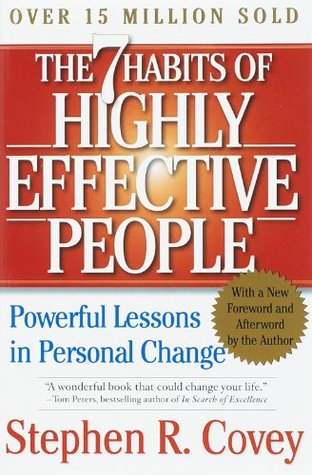
About the Book: The first non-fiction book to sell more than one million copies of its audio version, The 7 Habits of Highly Effective People proved both a paradigm shifter and a timeless leadership manual. Engagingly and with a lot of bravado, Stephen R. Covey claims that good leaders are good people as well and that they all share seven characteristics. Namely, they are independent: proactive, with a mission statement, and a personal vision; but, also, interdependent: they value people, respect and understand their opinions, and are capable of combining their strengths; finally, they continually improve. (Read a brief summary of the book | Read more about Stephen R. Covey | Buy the book)
Favorite Quote:
I am what I am today because of the choices I made yesterday. Share on X The 7 Habits of Highly Effective People1.3 John C. Maxwell – The 21 Irrefutable Laws of Leadership
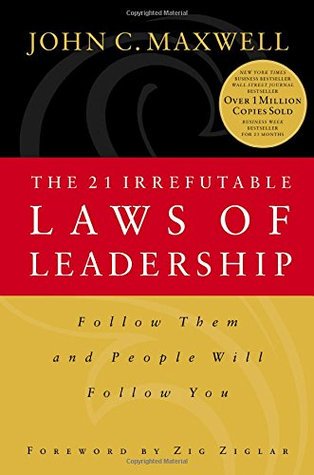
About the Book: The 21 Irrefutable Laws of Leadership lists 21 laws which, as its subtitle suggests, are all you need to follow if you want people to follow you. A brief preview: Maxwell’s law of influence explains why Abraham Lincoln was demoted from a captain to a private; also, if McNamara knew his law of solid ground, the Vietnam War might have been a different affair; additionally, the law of buy-in is the inspiration behind the passive resistance movement. Did we tickle your fancy? (Read a brief summary of the book | Read more about John C. Maxwell | Buy the book)
Favorite Quote:
You can’t move people to action unless you first move them with emotion… The heart comes before the head. Share on X1.4 John C. Maxwell – Developing the Leader Within You
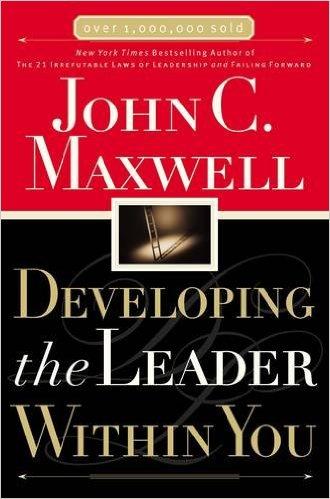
About the Book: Published back in 1993, Developing the Leader Within You was John C. Maxwell’s first book on leadership and one of the three in his oeuvre to sell over a million copies. Well-structured and well-written (as are all of Maxwell’s books), Developing the Leader Within You will teach you everything you need to know about leadership, from the key to it (Priorities) through its most important ingredient (Integrity) to its most indispensable quality (Vision). (Read a brief summary of the book | Read more about John C. Maxwell | Buy the book)
Favorite Quote:
A leader is great not because of his or her power, but because of his or her ability to empower others. Share on X1.5 John C. Maxwell – The Five Levels of Leadership
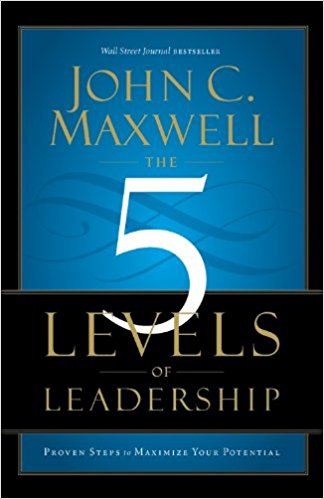
About the Book: In The Five Levels of Leadership, John C. Maxwell defines the five steps one should take before becoming a true leader, and leads you on your road from Position (Level 1), through Permission (Level 2), Production (Level 3), and People Development (Level 4), so that you can, finally, reach the Pinnacle (Level 5). The book also includes a portrait of a Level 5 Leader; almost expectedly, it’s our very dear old Wizard, John Wooden (see 2.17) (Read a brief summary of the book | Read more about John C. Maxwell | Buy the book)
Favorite Quote:
The challenge of leadership is to create change and facilitate growth. Share on X1.6 John C. Maxwell – Leadership Gold
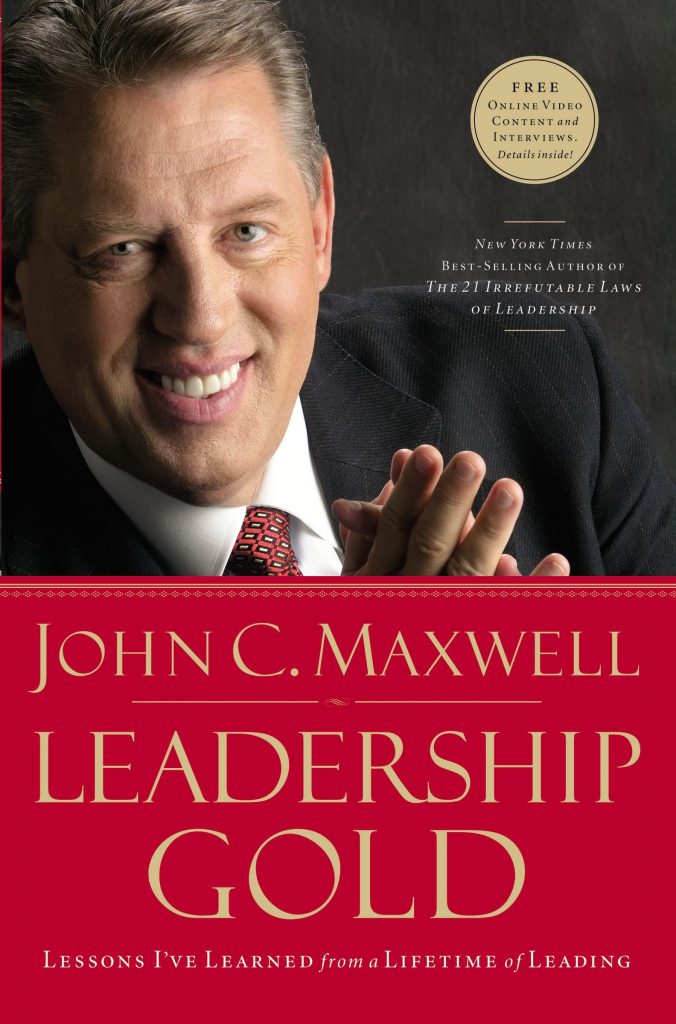
About the Book: Consider us old-fashioned, but we firmly believe that no list of leadership books should ever be considered complete without at least a few John C. Maxwell entries. After all, they don’t consider the man “the No. 1 leadership and management expert in the world” for no reason. In Leadership Gold, the final John C. Maxwell book on this list (for now, that is: see 3.4), he shows why on every page. A vintage Maxwell, the book sums up everything he knows about leadership, offering “the best of the best, the tried-and-true lessons that no one but Maxwell can share.” (Read a brief summary of the book | Read more about John C. Maxwell | Buy the book)
Favorite Quote:
Good leaders don’t belittle people – they enlarge them. Share on X1.7 Ray Dalio – Principles
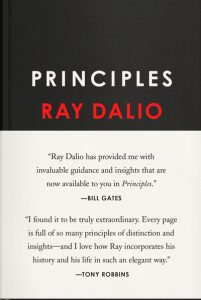
About the Book: John C. Maxwell says that Integrity is the most important ingredient of leadership; in the 123-page Principles (a booklet recommended by everyone from Jack Dorsey to Bill Gates), Ray Dalio breaks down integrity into its atomic components: Principles. “Principles had a profound positive impact on my leadership style – through living more honestly,” writes Reed Hastings, the founder of Netflix. Over to you. (Read a brief summary of the book | Buy the book)
Favorite Quote:
Principles are fundamental truths that serve as the foundations for behavior that gets you what you want out of life. They can be applied again and again in similar situations to help you achieve your goals. Share on X1.8 Robert Greene – The 48 Laws of Power
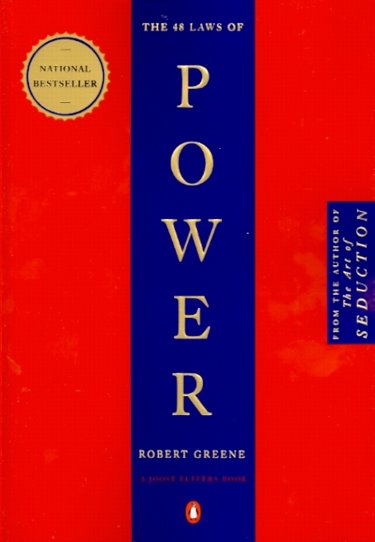
About the Book: “Beguiling” and “fascinating” (People magazine), Robert Greene’s The 48 Laws of Power is about all those people who believe in the myth of the strong leader – and want to reenact it (see 3.9). A hit among prison inmates and celebrities – the rap and hip-hop community, especially – The 48 Laws of Power sounds much more Machiavellian than one should like from a bestseller. But, according to Greene, just like Machiavelli (see 2.4), he’s merely stating the facts. (Read a brief summary of the book | Read more about Robert Greene | Buy the book)
Favorite Quote:
Do not leave your reputation to chance or gossip; it is your life's artwork, and you must craft it, hone it, and display it with the care of an artist. Share on X The 48 Laws of Power1.9 Robert B. Cialdini – Influence
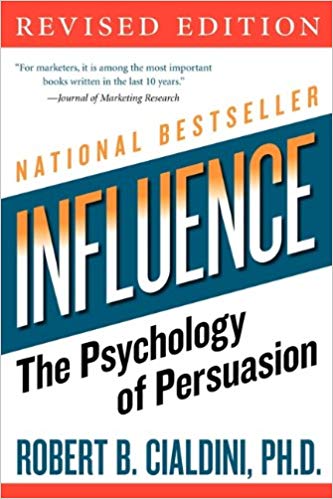
About the Book: Speaking of the cold hard facts of life and the ways one can use them to his benefit, Robert B. Cialdini’s Influence is the classic book on persuasion. A seminal expert in the field, Cialdini reveals in Influence why we say “yes” when we do and how one can turn a “no” into a “yes” if he/she likes to. As enlightening as dangerous in the wrong hands, Influence has illuminated the worlds of sales, marketing, leadership and psychology for the past thirty-five years – and it will undoubtedly go on doing the same for many decades to come. (Read a brief summary of the book | Buy the book)
Favorite Quote:
A well-known principle of human behavior says that when we ask someone to do us a favor, we will be more successful if we provide a reason. People simply like to have reasons for what they do. Share on X Influence1.10 Daniel H. Pink – Drive
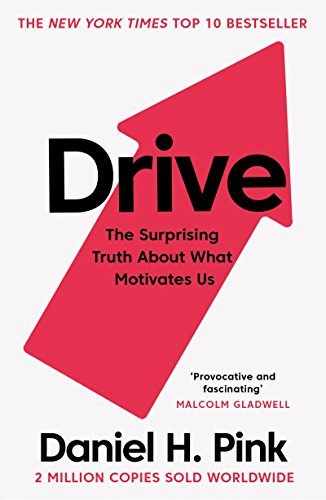
About the Book: Leaders motivate and inspire. Daniel H. Pink’s exceptional book can teach you how. It explores the basics of motivation and compares the contemporary business practices with a few surprising scientific findings. The result? An entirely new theory about what motivation actually is and about how one should motivate others. Hint? It’s not about the money, money, money… (Read a brief summary of the book | Buy the book)
Favorite Quote:
Pay your son to take out the trash — and you’ve pretty much guaranteed the kid will never do it again for free. Share on X Drive1.11 Michael Maccoby – The Leaders We Need
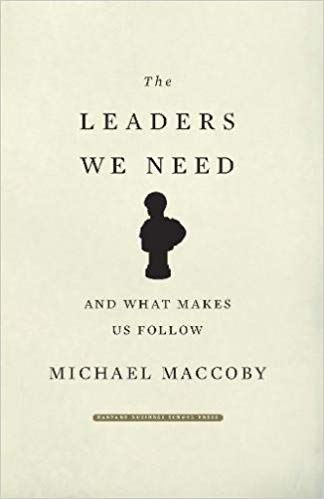
About the Book: Through ten chapters, in The Leaders We Need Michael Maccoby examines not only the definition of a leader and the reasons why other people need one but also the different types of leaders, whether for knowledge work, health care or learning; of course, there’s a chapter about “The President We Need” (now a bit outdated) and one about you: “Becoming a Leader We Need.” (Read a brief summary of the book | Buy the book)
Favorite Quote:
The leaders we want are not always the leaders we need. Share on X1.12 James M. Kouzes and Barry Z. Posner – The Leadership Challenge
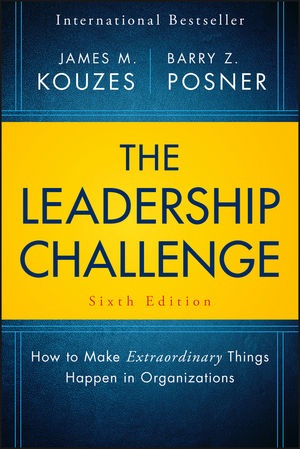
About the Book: One of the most trusted sources on becoming a great leader, The Leadership Challenge has sold more than 2 million copies since its first publication and has been translated into more than 20 languages. Continuously updated, this book can still teach you how to make extraordinary things happen in your organization! (Read a brief summary of the book | Buy the book)
Favorite Quote:
Exemplary leaders know that if they want to gain commitment and achieve the highest standards, they must be models of the behavior they expect of others. Share on X1.13 James M. Kouzes and Barry Z. Posner – The Truth About Leadership
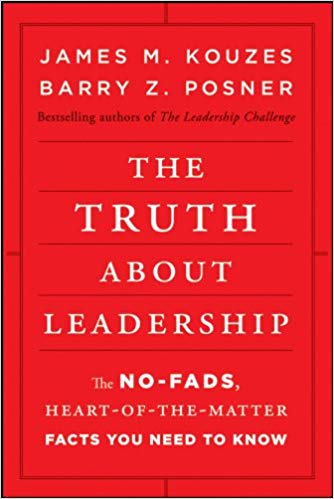
About the Book: The Truth About Leadership is Kouzes and Posner’s examination of the “no-fads, heart-of-the-matter facts” you need to know about leadership. Based on more than 1 million responses to Kouzes and Posner’s leadership assessment and more than three decades of research, The Truth About Leadership reveals the ten time-tested (and sometimes, counterintuitive) truths about leadership, from the obvious “you make a difference” to the romantic “leadership is an affair of the heart.” (Buy the book)
Favorite Quote:
Conformity produces compliance, not commitment. Unity is essential, and unity is forged, not forced. Share on X1.14 Ram Charan, Stephen Drotter and James Noel – The Leadership Pipeline
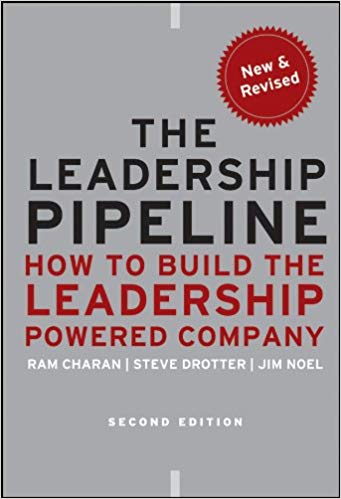
About the Book: If you’re into soccer, you know that it often happens that most of the great coaches were players themselves once, and, quite frequently, for the very same team: Franz Beckenbauer, Carlo Ancelotti, Pep Guardiola. Why should your company be any different? Read The Leadership Pipeline and learn how to recognize and develop the leaders within your organization. (Read a brief summary of the book | Buy the book)
Favorite Quote:
Maturity is a result of learning from success and from mistakes—in other words, learning from experience. Share on X1.15 Robert Townsend – Up the Organization
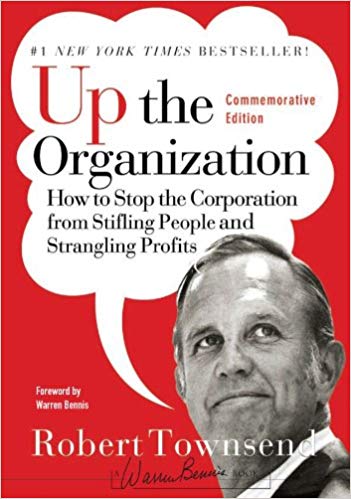
About the Book: In Warren Bennis’ opinion (see 1.1), Robert C. Townsend was “the management guru of the Sixties.” And in the 97 chapters of Up the Organization, you can see why. Iconoclastic and revolutionary, the book is essentially an encyclopedia of leadership, topping many lists of books every manager should read in his lifetime. Tom Peters suggests doing something more with his words: “Townsend shouldn’t just be read, he should be memorized.” You know what? We agree with him. (Read a brief summary of the book | Buy the book)
Favorite Quote:
Don’t hire a master to paint you a masterpiece and then assign a roomful of schoolboy-artists to look over his shoulder and suggest improvements. Share on X1.16 Marcus Buckingham and Curt Coffman – First, Break All the Rules
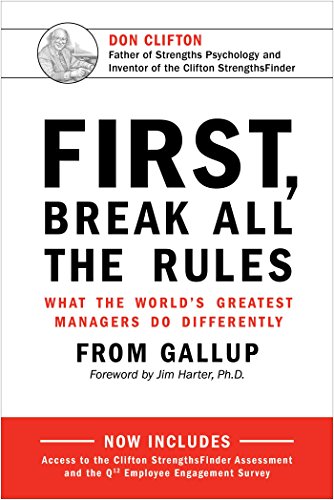
About the Book: A first-rate management classic, First, Break All the Rules is widely considered one of the most important management books ever written. No wonder the editors of Time magazine decided to include it in their list of the “25 Most Influential Business Management Books” ever written. Based on Gallup’s in-depth interviews of over 80,000 managers in over 400 companies (the largest study of its kind), First, Break All the Rules reveals “what the world’s greatest managers do differently.”
Favorite Quote:
Great managers do share one thing: Before they do anything else, they first break all the rules of conventional wisdom. Share on X1.17 Rodd Wagner and James K. Harter – 12
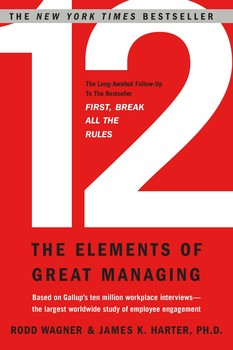
About the Book: Based once again on the largest worldwide study of its kind (this time, Gallup’s ten million workplace interviews), Rodd Wagner and James K. Harter’s 12 is a sort of a follow-up to First, Break All the Rules, scrutinizing thoroughly the 12 elements of great management revealed in Buckingham and Coffman’s classic. You can’t go wrong with this one: it’s based on experience. (Read a brief summary of the book | Buy the book)
Favorite Quote:
Incorporating employee ideas pays back twice. First, the idea itself often is a good one. Second, it makes it much more likely that employees will be committed to its execution. Share on X1.18 Charles Duhigg – Smarter Faster Better
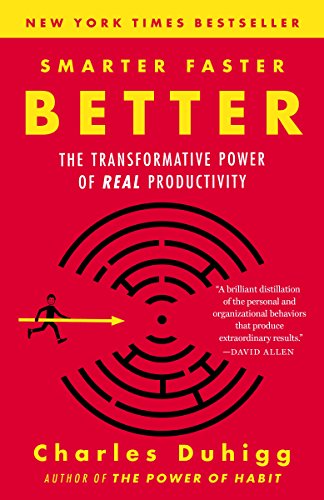
About the Book: In Smarter Faster Better, Charles Duhigg delves into the pros and cons of eight productivity concepts, each of them as vital to establishing the habits of a productive person as it is essential to kickstart the evolution of any great leader. The eight concepts in question are: motivation, teams, focus, goal setting, managing others, decision making, innovation, and absorbing data. You may be even more interested in the theoretical discussion of the Appendix, aptly titled “A Reader’s Guide to Using These Ideas.” (Read a brief summary of the book | Buy the book)
Favorite Quote:
Models help us choose where to direct our attention, so we can make decisions, rather than just react. Share on X Smarter Faster Better1.19 Vince Poscente – The Ant and the Elephant
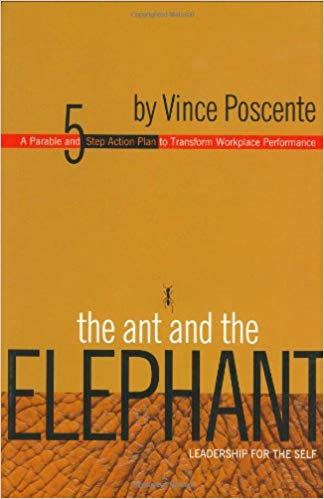
About the Book: Subtitled “Leadership for the Self,” The Ant and the Elephant is “a different kind of book for a different kind of leader.” The main idea of this business fable is simple: you can’t lead others before you learn how to lead yourself. And when you do learn the latter, then leading others will come almost as naturally to you as breathing. Use this book as your guide. (Read a brief summary of the book | Buy the book)
Favorite Quote:
Without conflict, there is no growth, and the most challenging conflict is within ourselves. Share on X1.20 Awdhesh Singh – The Secret Red Book of Leadership
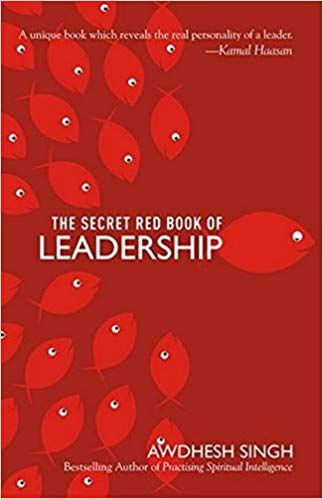
About the Book: Many of the books on this list claim that modern leaders should be kind and vulnerable and inspiring. Awdhesh Singh begs to differ and minces no words in The Secret Red Book of Leadership: “However noble your goal may be,” he writes, “it is impossible to achieve it unless you severely punish those who obstruct your way. In a game of power, you have to create fear in the hearts and minds of all opponents.” This one’s for Machiavellians and Gordon Gekko types of leaders. (Read a brief summary of the book)
Favorite Quote:
Treating everyone equal is the surest recipe for disaster. Share on X2. The “History Doesn’t Create Leaders: Leaders Create History” Shelf
“Men make history and not the other way around,” wrote once Harry S. Truman. “In periods where there is no leadership, society stands still. Progress occurs when courageous, skillful leaders seize the opportunity to change things for the better.” We couldn’t have said it better ourselves, Harry!
2.1 Sun Tzu – The Art of War
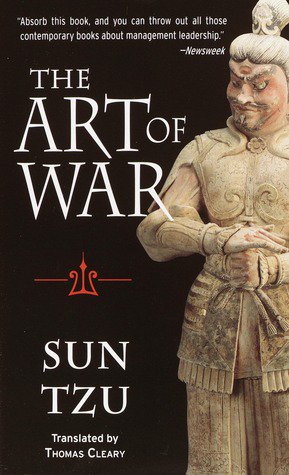
About the Book: Even though written by a Chinese military general over two and a half millennia ago, The Art of War is still widely read by CEOs worldwide and has influenced leaders as diverse as General MacArthur, Marc Benioff, and Bill Belichick! Each of the thirteen sections of Sun Tzu’s classic serves as a perennial reminder that the business world is a modern battlefield. And that you need to be prepared for everything to gain the advantage and win. (Read a brief summary of the book | Buy the book)
Favorite Quote:
Appear weak when you are strong, and strong when you are weak. Share on X The Art Of War2.2 Laurie Beth Jones – Jesus, CEO
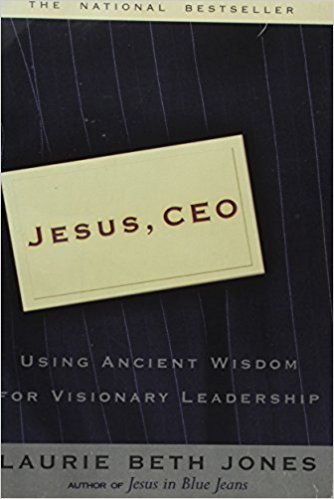
About the Book: They say that if you want to be the best, you got to learn from the best. Well, if that applies to leadership, then there’s no one you should like to learn more than from Jesus – after all, he was the Leader of Men, or, as Erlich once said in the Silicon Valley, “the CEO of the world.” Laurie Beth Jones’ Jesus, CEO teaches you how you can use ancient wisdom for visionary leadership, through the story of an exceptional man who “built a disorganized ‘staff’ of twelve into a thriving enterprise.” (Read a brief summary of the book | Buy the book)
Favorite Quote:
Leaders must have not only vision and communication skills, but also tremendous personal resolve. Share on X2.3 Partha Bose – Alexander the Great’s Art of Strategy
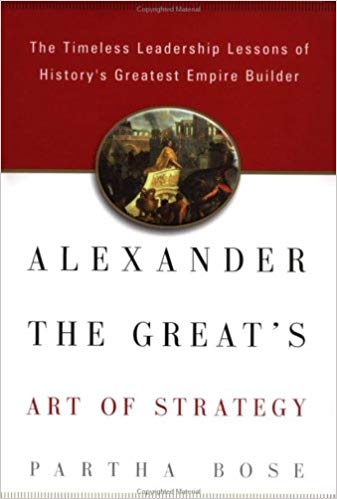
About the Book: By the age of 30, Alexander the Great managed to create one of the largest empires of the ancient world. Partha Bose’s Alexander the Great’s Art of Strategy reveals how his innovative tactics and military strategies can be applied in the business world of today to “create a winning philosophy, motivate others, prepare for the unexpected, leave a legacy of lasting value, establish a visionary leadership, build a successful organization, and more.” (Read a brief summary of the book | Buy the book)
Favorite Quote:
Too often the legacy of a strong leader is an organization without sufficient leadership capacity to fill the void left behind by the departing leader. Share on X2.4 Niccolò Machiavelli – The Prince

About the Book: Let us introduce this book which needs no introduction with two quotes by Michael Scott. The first one: “Would I rather be feared or loved? Um. Easy. Both. I want people to be afraid of how much they love me.” The second one: “The end justifies the mean.” No, that’s not a spelling mistake. And yes, both of these quotes have their origin in Niccolò Machiavelli’s The Prince, the classic and rational guide on how to acquire and maintain political (or any kind of) power. (Read a brief summary of the book | Buy the book)
Favorite Quote:
Everyone sees what you appear to be, few experience what you really are. Share on X2.5 Donald Phillips – Lincoln on Leadership
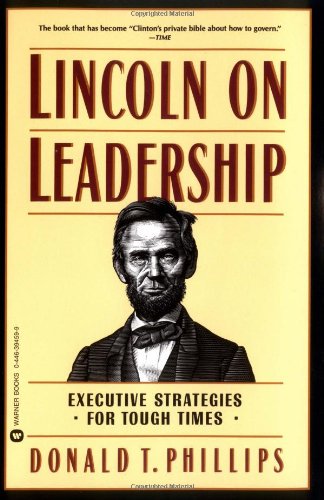
About the Book: Abraham Lincoln is nowadays routinely ranked by both scholars and the public as one of the greatest – and usually the greatest – US presidents. And this even though he had the unfortunate trouble of leading the country through its bloodiest war and its greatest political crisis. All in four years! Donald T. Phillips’ book goes through the skills and talents which made Lincoln such a capable leader. And it doesn’t only examine what Lincoln did to overcome the insurmountable obstacles he faced. It also explains how his actions are relevant today, as well. (Read a brief summary of the book | Buy the book)
Favorite Quote:
The best leaders never stop learning. Share on X2.6 Doris Kearns Goodwin – Team of Rivals
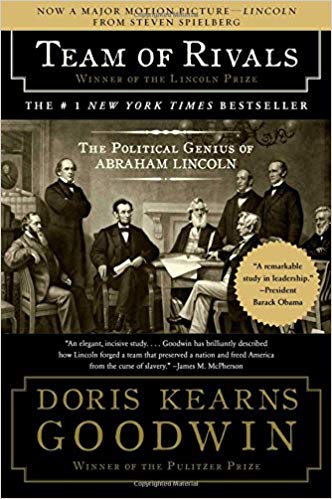
About the Book: Team of Rivals is another book examining and evaluating the leadership capabilities of Abraham Lincoln. Written by Pulitzer-Prize winning historian Doris Kearns Goodwin, it focuses on Lincoln’s extraordinarily successful attempts to reconcile conflicting and diverging personalities and political blocs during the American Civil War on the path to abolition and victory. (Read a brief summary of the book | Buy the book)
Favorite Quote:
Washington was a typical American. Napoleon was a typical Frenchman, but Lincoln was a humanitarian as broad as the world. He was bigger than his country – bigger than all the Presidents together. (Via Leo Tolstoy) Share on X2.7 Richard Brookhiser – George Washington on Leadership
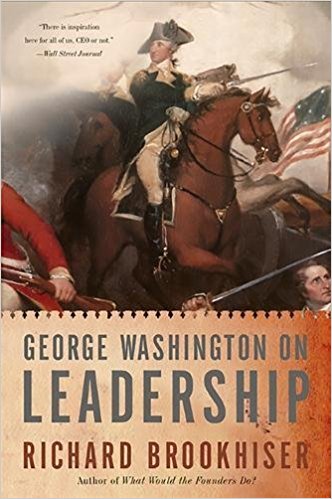
About the Book: “First in war, first in peace, and first in the hearts of his countrymen,” wrote politician Henry Lee in 1799, upon the death of founding father George Washington, one of the three greatest American presidents in history. Richard Brookhiser adds: “first in leadership as well!” “There is an inspiration here for all of us,” says a Wall Street Journal review, “CEO or not.” (Read a brief summary of the book | Buy the book)
Favorite Quote:
No leader ever knows exactly what is coming, or all the things he should prepare for. He can, however, know that he doesn't know, and prepare mentally for that. Be light on your feet, because you will be moving a lot. Share on X2.8 Eliot A. Cohen – Supreme Command
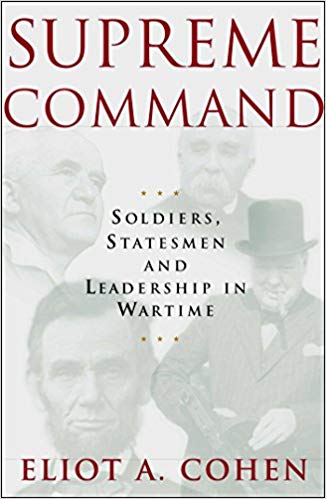
About the Book: “War is too important to leave it to the generals,” said once Georges Clemenceau, France’s Prime Minister during the First World War. In Supreme Command, Eliot A. Cohen reveals that the great political leaders of the past always adhered to this rule, challenging and confronting their military officers to great effect and with great results. The leaders Cohen is most interested in are Abraham Lincoln (yet again!), Georges Clemenceau, Winston Churchill, and David Ben-Gurion. See what you can learn from each of them. (Read a brief summary of the book | Buy the book)
Favorite Quote:
The difficulty is that the great war statesman do… improper things – and, what is more, it is because they do so that they succeed. Share on X2.9 Alan Axelrod – Patton on Leadership
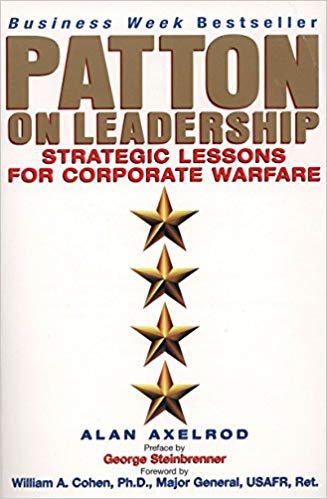
About the Book: Sometimes controversial but always colorful, General George S. Patton was turned into an American folk hero after he was played by George C. Scott in the Academy Award-winning 1970 biographical movie, Patton. Here, Alan Axelrod scrutinizes his combat tactics, integrity, and inspirational speeches – the same which won the Allies a victory over Hitler – and tries to pinpoint what a modern leader can learn from them and use in the corporate battlefield. Turns out: a lot! (Read a brief summary of the book | Buy the book)
Favorite Quote:
Leadership is often a matter of balancing timing against available resources. Share on X2.10 Walter Isaacson – Steve Jobs
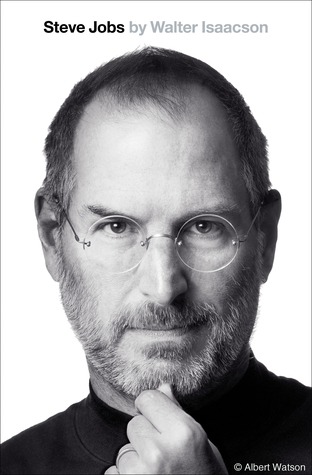
About the Book: Steve Jobs is a man who needs no introduction, his name being almost synonymous with the phrase “modern leader.” This is the story of his life, written at his own request by one of the most talented biographers of today’s world Walter Isaacson. Based on unprecedented access to Steve Jobs’ life and hundreds of interviews with his relatives, Steve Jobs was adapted in 2015 by Danny Boyle for the big screen. But we highly recommend that you read the book first, from which you can learn just as much about how to become a good leader as about how good leaders, behind the stage, are sometimes nothing more than ruthless people. (Read a brief summary of the book | Buy the book)
Favorite Quote:
Quality is much better than quantity. One home run is much better than two doubles. Share on X Steve Jobs2.11 Ashlee Vance – Elon Musk
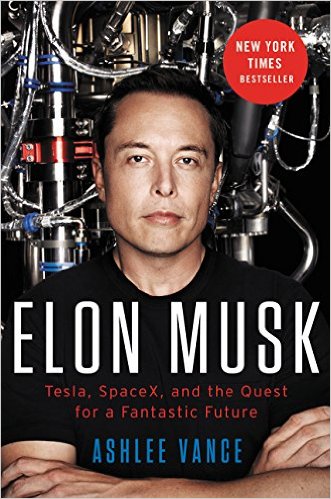
About the Book: One of the best books of 2015 according to just about every respectable institution (The Wall Street Journal, NPR, Audible and Amazon), Ashlee Vance’s biography of Elon Musk is “a tremendous look into arguably the world’s most important entrepreneur. Vance paints an unforgettable picture of Musk’s unique personality, insatiable drive and ability to thrive through hardship.” (The Washington Post) (Read a brief summary of the book | Buy the book)
Favorite Quote:
Good ideas are always crazy until they’re not. Share on X Elon Musk2.12 Porter Erisman – Alibaba’s World
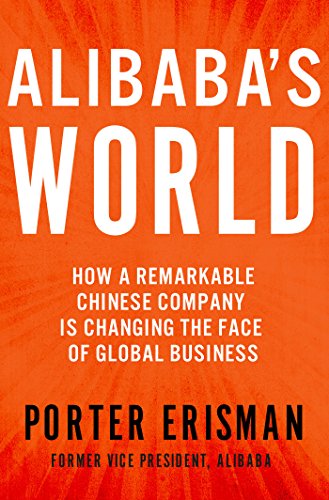
About the Book: Founded in 1999, Alibaba “is no longer a David… it’s a Goliath.” In fact, since the beginning of 2018, it’s one of the top 10 most valuable brands in the world. Moreover, according to projections, by 2020, it may become one of the three most valuable, eclipsing both Facebook and Amazon. In Alibaba’s World, Porter Erisman reveals how Jack Ma built such a great company; and what you can learn from him. (Read a brief summary of the book | Buy the book)
Favorite Quote:
Learn from competitors but never copy them. Copy them and you will die. Share on X2.13 Phil Knight – Shoe Dog
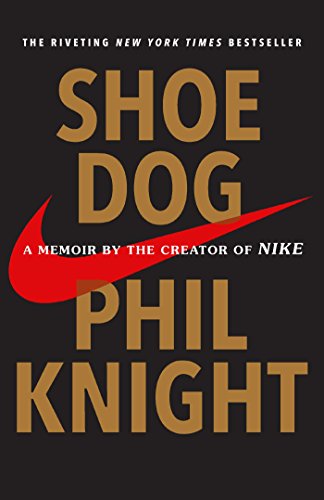
About the Book: The co-founder of Nike Inc., Phil Hampson Knight – better known as Buck – is one of the 30 wealthiest people in the world and “one of the best business leaders of all time.” And he didn’t get to become what he is by following some rules. In fact, he not only broke the conventional ones, but he also wrote new ones, his own. In Shoe Dog, he tells how he managed to do this. And the book is as inspiring and fascinating as any Hollywood movie. (Read a brief summary of the book | Buy the book)
Favorite Quote:
Let everyone else call your idea crazy… just keep going. Don’t stop. Don’t even think about stopping until you get there, and don’t give much thought to where ‘there’ is. Whatever comes, just don’t stop. Share on X Shoe Dog2.14 Robert Slater – Get Better or Get Beaten
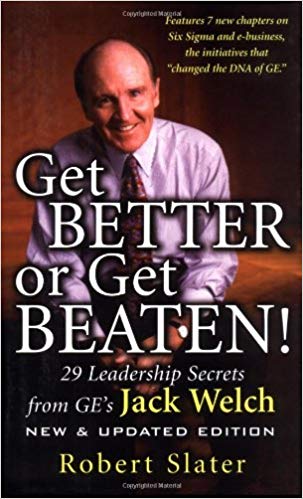
About the Book: Robert Slater may be a renowned American author and journalist, but it should be only obvious that his 1994 book, Get Better or Get Beaten, earns its sport here because of who it is about: Jack Welch, the legendary chairman of General Electric, “perhaps the most admired CEO of his generation.” Well, Get Better or Get Beaten is as close as you’ll ever get to his philosophical worldview, revealing his 29 leadership secrets. (Read a brief summary of the book | Buy the book)
Favorite Quote:
The most important thing a leader has to do is to absolutely search and treasure and nourish the voice and dignity of every person. Share on X2.15 Robert P. Miles – The Warren Buffett CEO
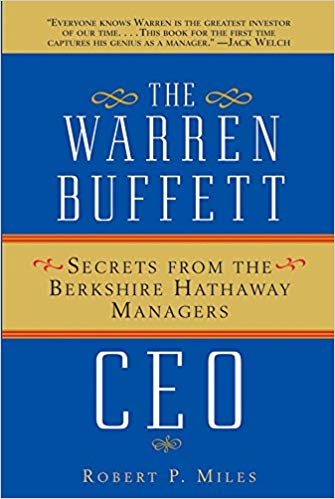
About the Book: “Everyone knows Warren is the greatest investor of our time,” writes none other than Jack Welch (see above) reviewing The Warren Buffett CEO. “This book for the first time captures his genius as a manager.” And, really, it’s a pity that there are so many books about Buffett the investor, and so little about Buffett the leader. Not that it’s a surprise, but he seems to be a Wizard in both fields. (Read a brief summary of the book | Buy the book)
Favorite Quote:
Combine a great idea with a great manager, you’re certain to obtain a great result. Share on X2.16 Joseph A. Maciariello – A Year with Peter Drucker
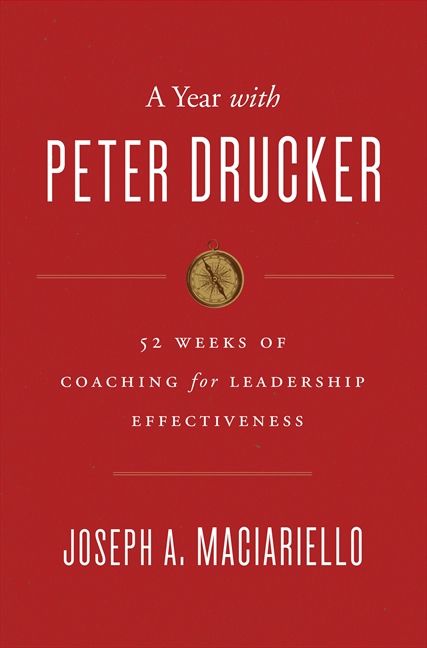
About the Book: Peter Drucker is widely considered “the founder of modern management.” He firmly believed that “in modern society, there is no other leadership group but managers. If the managers of our major institutions, and especially of business, do not take responsibility for the common good, no one else can or will.” Compiled by his longtime collaborator Joseph A. Maciarello, A Year with Peter Drucker is a step-by-step guide to perfecting your leadership skills, week after week; or, as the subtitle suggests, it is a 52-week coaching program for leadership effectiveness. (Read a brief summary of the book | Buy the book)
Favorite Quote:
Whenever you see a successful business, someone once made a courageous decision. Share on X2.17 John Wooden – Wooden on Leadership
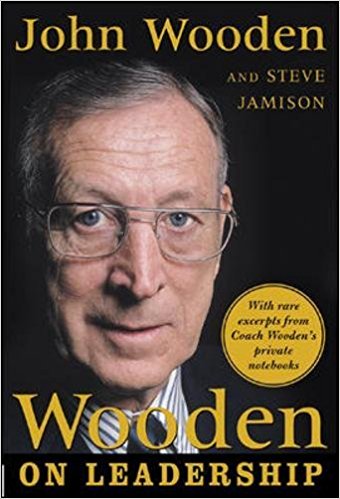
About the Book: If you’re not a sportsperson, you may have never heard of John Wooden. Which is a pity, because he was so successful and revered as a coach, that they nicknamed him “The Wizard”! In Wooden on Leadership – one of the seven books on leadership he authored – you can easily see why. Everything is so magical. Neatly structured and organized, and, yet – inspirational as hell! After all, he was a basketball coach, so no lack of inspirational leadership messages here, folks! (Read a brief summary of the book | Buy the book)
Favorite Quote:
You are not a failure until you start blaming others for your mistakes. Share on X2.18 Bill Walsh – The Score Takes Care of Itself
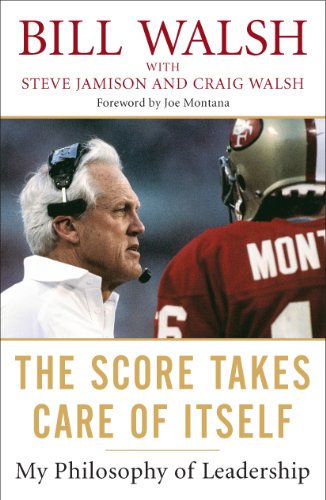
About the Book: Staying with sports leaders and moving on to Bill Walsh, one of NFL’s greatest coaches. In The Score Takes Care of Itself, you’ll learn how he managed to take the 49ers from being the worst thing in the league to Super Bowl contenders in less than three years. The keyword: Standards, in a way, Walsh’s translation of Dalio’s Principles (see 1.7). “Even if you’ve never watched a down of football,” notes Ryan Holiday, “you’ll get something out of this book.” (Buy the book)
Favorite Quote:
Unless you’re a guard on a chain gang, others follow you based on the quality of your actions rather than the magnitude of your declarations. Share on X2.19 Viktor E. Frankl – Man’s Search for Meaning
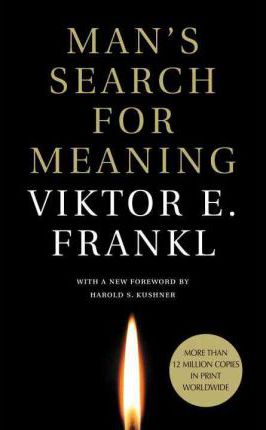
About the Book: Just as Lincoln can teach you something about leadership because he had to lead the US through the Civil War, Frankl can teach you even more because he survived through Auschwitz. His main observation: the people who survived the Holocaust were the ones who didn’t give up. And they never gave up, because they had some purpose in life. A goal, which gave them the right mindset to understand that even suffering may be a teacher. Possibly, the best one. (Read a brief summary of the book | Buy the book)
Favorite Quote:
When we are no longer able to change a situation, we are challenged to change ourselves. Share on X Man’s Search for Meaning2.20 Nelson Mandela – Long Walk to Freedom
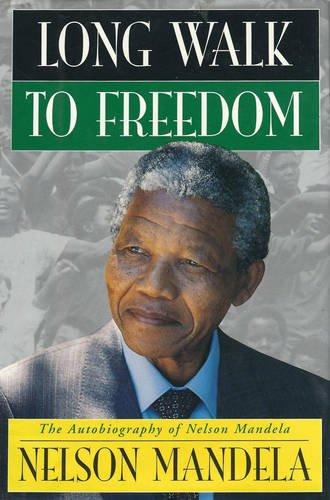
About the Book: Long Walk to Freedom, Nelson Mandela’s 1994 autobiography, should undoubtedly be considered one of the books of our times, regardless of the category. Chronicling his rise from an anti-apartheid activist to a leader of the ANC and an international icon, Long Walk to Freedom is the only memoir of Mandela written by him and published during his lifetime. If you want a leader to look up to – Mandela is one we’d warmly recommend. (Read a brief summary of the book | Buy the book)
Favorite Quote:
A nation should not be judged by how it treats its highest citizens, but it's lowest ones. Share on X3. The “Different Types of Leaders and Leadership” Shelf
You can be an inspirational or a heart-led leader; you can practice servant or primal leadership; see which one of these different types of leaders you are and which type of leadership best suits your needs.
3.1 John Adair – The Inspirational Leader
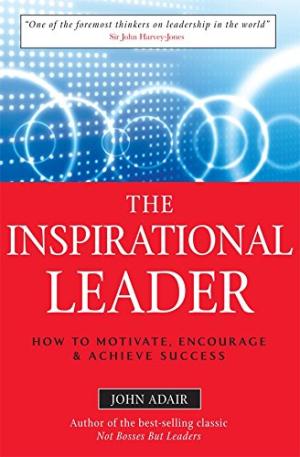
About the Book: John Adair is the leading authority on leadership-related matters in Europe; and in The Inspirational Leader, he shares almost everything he knows on how to motivate, encourage and achieve success. Written in the form of a series of discussions between a young executive and the author, The Inspirational Leader argues that leaders are made, not born. And that you can learn to become one. (Read a brief summary of the book | Buy the book)
Favorite Quote:
Put a person in one situation, and they will be accepted as a leader; change the situation and they won't. Share on X3.2 Jane E. Dutton and Gretchen M. Spreitzer (Eds.) – How to Be a Positive Leader
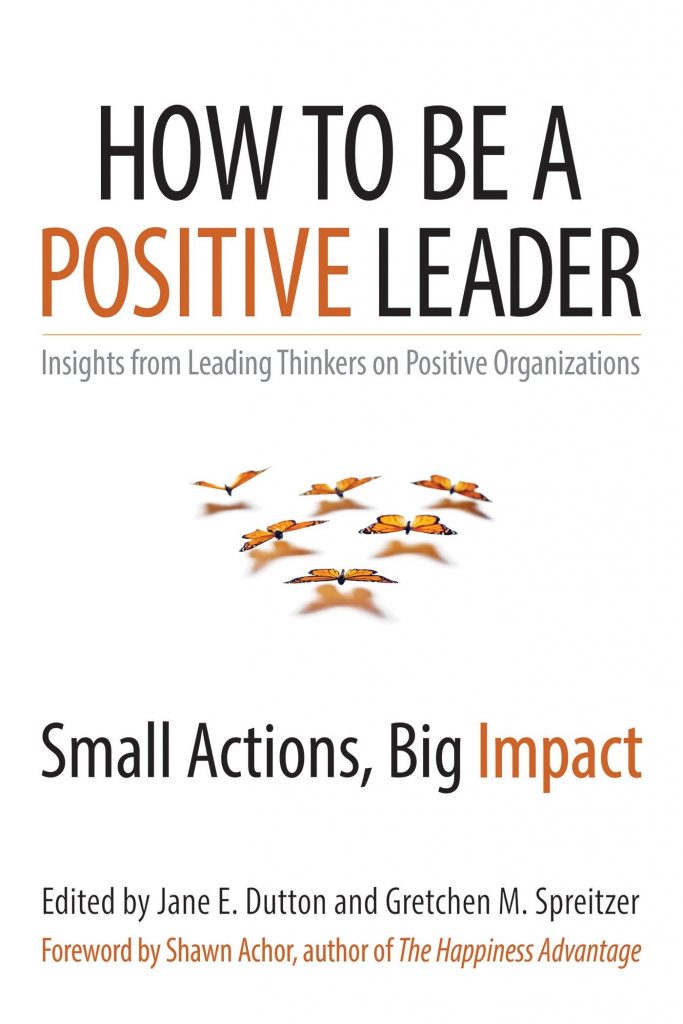
About the Book: Authored by no less than 16 authors, How to Be a Positive Leader is a collection of 13 essays, all of which aim to teach you how you can become a positive leader. The essays—written by leading thinkers such as Adam Grant (see 4.6), Kim Cameron, and Robert Quinn—show how you can build a positive organization, by fostering positive relationships, unlocking resources from within, tapping into the good, and creating resourceful change. (Read a brief summary of the book | Buy the book)
Favorite Quote:
Your behavior matters, and the more positively you lead, the more successful and happy your organization, family, and community will become. Share on X3.3 Sudhir Venkatesh – Gang Leader for a Day
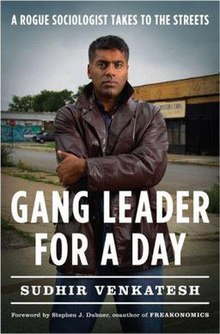
About the Book: You will only understand why we include this book on our list once you read it. While a graduate student at the University of Chicago, “rogue sociologist” Sudhir Venkatesh decided to take to the street and hang out with the Black Kings, a crack-selling gang operating around Chicago’s notorious Robert Taylor Homes. Let’s just say: there are many things you should learn and unlearn from the practices of gang leaders; and this is the best book to do it. (Read a brief summary of the book | Buy the book)
Favorite Quote:
The skill, ingenuity, and resilience of those taking an ‘alternate economic path’ in life cannot be boiled down to the laws they transgress. Share on X3.4 John C. Maxwell – The 360o Leader
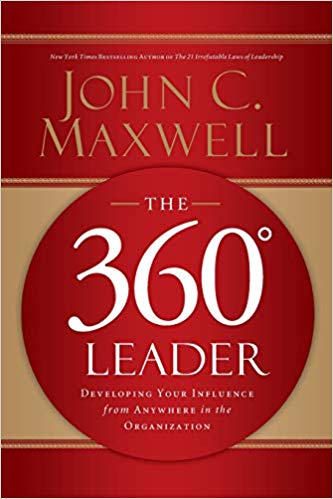
About the Book: Who says that in order to be a leader, you need to be at the top of the pyramid? In The 360o Leader, John C. Maxwell argues that it is even better that you are in the middle of your organization because from there, you can be a 360o Leader. Meaning: you can lead both down, across, and up. And this book can teach you how – in no less than 23 principles! (Read a brief summary of the book | Read more about John C. Maxwell | Buy the book)
Favorite Quote:
Leadership is a choice you make, not a place you sit. Share on X3.5 Tommy Spaulding – The Heart-Led Leader
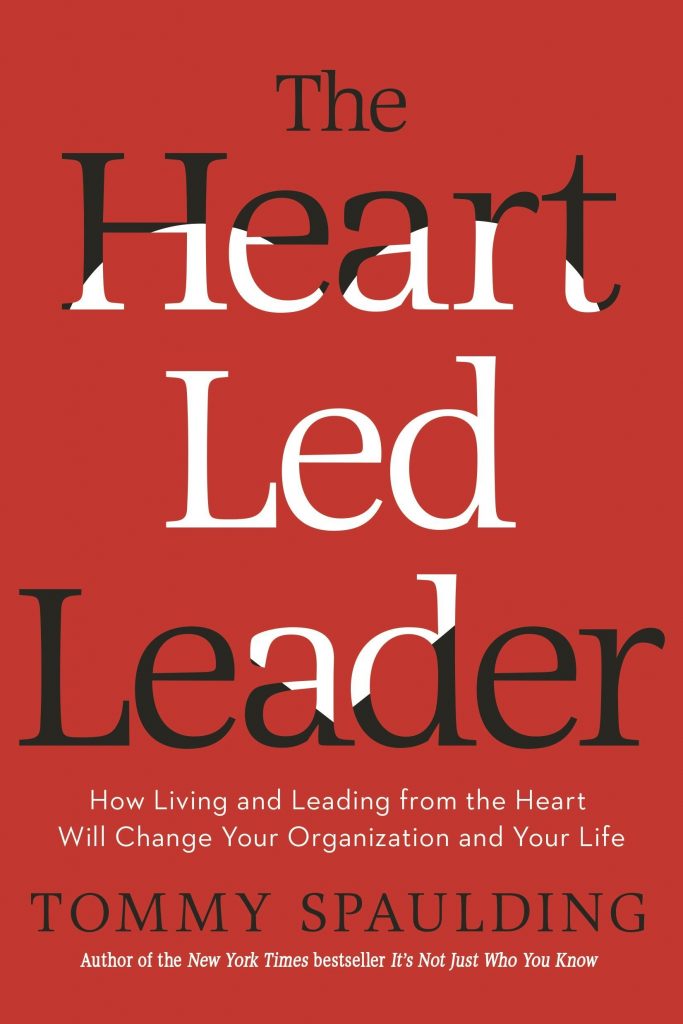
About the Book: “Success is about building hearts,” writes Tommy Spaulding in The Heart-Led Leader, “not resumes.” Authentic leaders, he goes on, lead from the heart, according to whose laws they also live their lives. Being a leader means understanding the values of transparency, vulnerability, humility, empathy, and, yes, love! As it is stated in the blurb, Tommy Spaulding’s vision is “a vision of leadership that has the power to transform everything we do and the lives of everyone we touch.” (Read a brief summary of the book | Buy the book)
Favorite Quote:
Heart-led leaders are always looking for that something more. Share on X3.6 Peter Drucker – The Effective Executive
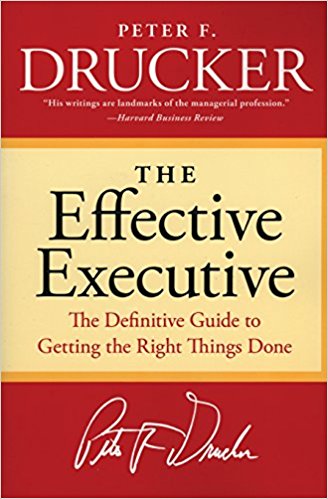
About the Book: Subtitled “the definitive guide to getting the right things done,” The Effective Executive is yet another classic from management guru Peter Drucker (see 2.16). Here, he identifies five practices you must learn and master if you want to be a good leader: time-management; deciding how you will contribute to your organization; understanding where and how you should mobilize strength to maximize the effect; setting the right priorities; and, finally, making the right and most effective decisions. Needless to add, each of the priorities is analyzed in detail – with all its why’s and how’s. (Read a brief summary of the book | Buy the book)
Favorite Quote:
Effective executives know that their subordinates are paid to perform and not to please their superiors. Share on X3.7 Kenneth Blanchard and Spencer Johnson – The One Minute Manager
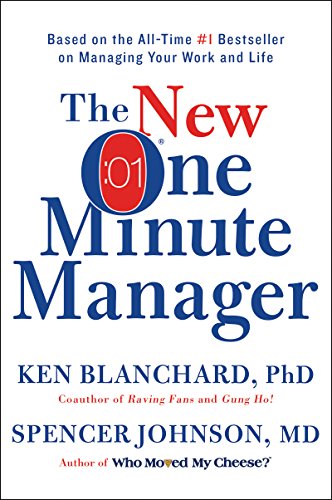
About the Book: The One Minute Manager takes the form of a fable, telling the story of a young man who’s looking for a mentor to lead him to greatness. The eponymous “One Minute Manager” turns out to be a three-minute manager, in the end. He’s someone who spends a minute on setting the three most important priorities for his employees, a minute to praise the ones who’ll meet them, and a minute to politely scold those who won’t. (Read a brief summary of the book | Buy the book)
Favorite Quote:
The One Minute Manager’s symbol is intended to remind each of us to take a minute out of our day to look into the faces of the people we manage. And to realize that they are our most important resources. Share on X The One Minute Manager3.8 Matthew Kelly – The Dream Manager
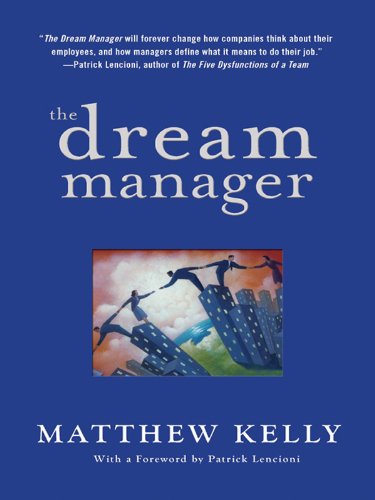
About the Book: If your employees hate you, says Matthew Kelly in The Dream Manager, they hate you for a reason. It’s not that you’re a bad person; but, simply put, you get one third of their lives in exchange for money. The only way you can atone for this: institute a new position, the Dream Manager, a combination of a financial consultant and a life coach, The Dream Manager is someone capable of turning your employees’ dreams into reality, and, consequently, their hate for you into genuine love and admiration. (Read a brief summary of the book | Buy the book)
Favorite Quote:
Once we stop dreaming, we start to lead lives of quiet desperation, and little by little passion and energy begin to disappear from our lives. Share on X3.9 Archie Brown – The Myth of the Strong Leader
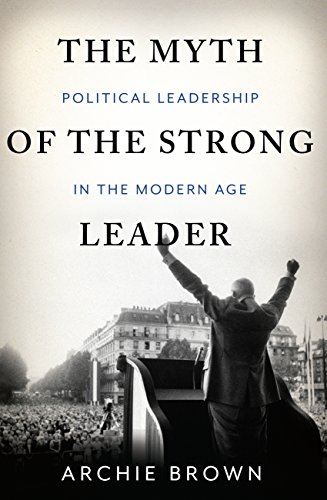
About the Book: Archie Brown is an Oxford-based political scientist and historian and The Myth of the Strong Leader is a book like no other on this list. “A magisterial study of political leadership around the world from the advent of parliamentary democracy to the age of Obama,” it shatters one of the most persisting myths in history: that of the strong leader. We’ll let Bill Gates tell you the rest: “Brown shows that the leaders who make the biggest contributions to history and humanity generally are not the ones we perceive to be ‘strong leaders.’ Instead, they tend to be the ones who collaborate, delegate, and negotiate—and recognize that no one person can or should have all the answers.”(Buy the book)
Favorite Quote:
There are many qualities desirable in a political leader that should matter more than the criterion of strength, one better suited to judging weightlifters or long-distance runners. Share on X3.10 Randy Grieser – The Ordinary Leader
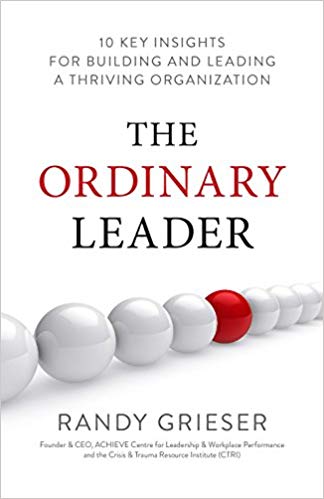
About the Book: An ordinary leader is someone who leads a small company or a team to triumph – and that’s it. He is not someone you’ll find on the cover of a book, nor one who spends his summers in his magnificent villa on the coast of Spain. And yet – he matters and makes the world a better place. Randy Grieser’s The Ordinary Leader is a book about all those people who don’t want to become a Steve Jobs or an Elon Musk (see 2.10 and 2.11) but want to lead. “Finally, a leadership book that I can relate to: this book is full of practical and accessible strategies,” exclaims Dave Llyod. (Buy the book)
Favorite Quote:
While personality traits and talents can make leading easier for some people, I believe great leadership is developed through a continuous process of self-reflection, education, and experience. Share on X3.11 Daniel Goleman – Primal Leadership
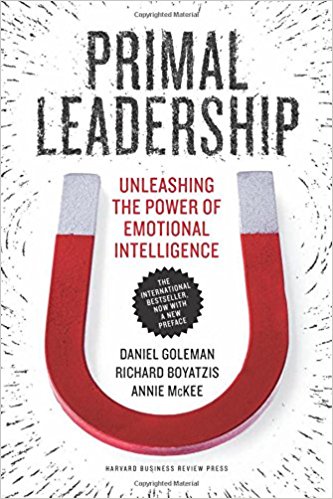
About the Book: If you think that vulnerability is something good leaders should stay away from – think again! Primal Leadership further reinforces Good to Great’s (see 4.1) conclusion that the most successful companies are led by humble leaders! Moreover, Daniel Goleman, the author who popularized the concept of “emotional intelligence,” claims that great leaders possess something even more special: a quality called “resonance.” (Read a brief summary of the book | Read more about Daniel Goleman | Buy the book)
Favorite Quote:
They craft a vision with heartfelt passion, they foster an inspiring organizational mission that is deeply woven into the organizational fabric, and they know how to give people a sense that their work is meaningful. Share on X3.12 Alexandre Havard – Virtuous Leadership
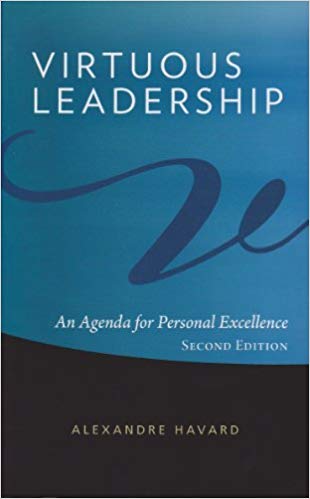
About the Book: “If you lead people to hell,” says Alexandre Havard, “you are not a leader. The Devil is not a leader – he’s a manipulator.” Learned and eruditely written, Virtuoso Leadership rummages through history books to teach modern leaders what the Ancient Greek and Medieval Christian philosophers already knew. Namely, that leadership and virtue not only go together well but are all but synonymous. (Read a brief summary of the book | Buy the book)
Favorite Quote:
Leaders, no matter what their religious or philosophical convictions are, feel the promptings of the natural moral law, compelling them to do good and avoid evil. Share on X3.13 Jim Dethmer, Diana Chapman, and Kaley Warner Klemp – The 15 Commitments of Conscious Leadership
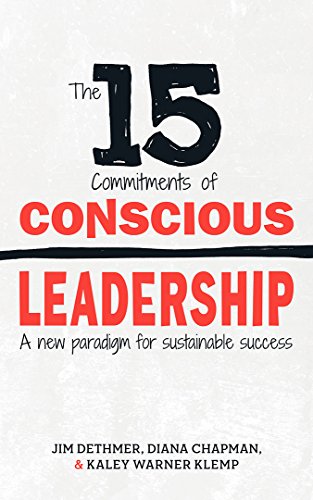
About the Book: According to the authors of The 15 Commitments of Conscious Leadership, there are two types of leaders, and you don’t want to be an unconscious one. Because, in that case, you are reactive and you follow your instincts; studies have shown that only when you are active and think rationally, you can lead your company to success. Follow these 15 steps and you will. (Read a brief summary of the book | Buy the book)
Favorite Quote:
At any particular time, leaders are operating from either fear or love. Share on X3.14 Stephen R. Covey – Principle-Centered Leadership
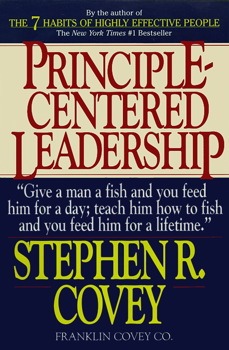
About the Book: Coercive leadership is based on fear: a leader is followed because his followers fear him. Utility leadership is based on usefulness: the followers agree to be led only because of the benefits they expect to receive from their leaders. Finally, principle-centered leadership is based on willingness: followers follow because they believe in the values of their leaders. Do we really need to tell you which one of the three is the best one? (Read a brief summary of the book | Read more about Stephen R. Covey | Buy the book)
Favorite Quote:
When you are living in harmony with your core values and principles, you can be straightforward, honest, and up-front. Share on X3.15 Robert K. Greenleaf – The Power of Servant Leadership
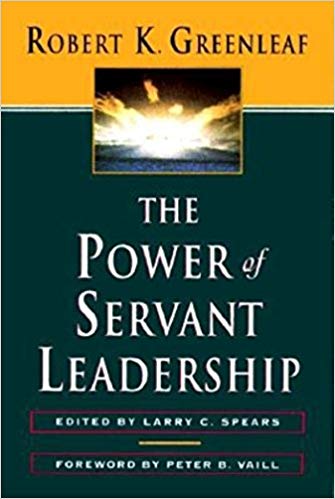
About the Book: If you don’t know what servant leadership is, this is the book from which you should learn all about it. Conceptualized by AT&T’s Robert K. Greenleaf over four decades ago, like all great ideas, servant leadership is counterintuitive. It says that the duty of a great leader is not to lead his/her company to success, but his/her employees to greatness. Simon Sinek’s Leaders Eat Last (see 4.3) owes a lot to this concept – just as much as Greenleaf’s idea owes to Jesus’ washing the feet of his followers on the Last Supper. (Read a brief summary of the book | Buy the book)
Favorite Quote:
As the ancient Taoist proclaimed, when the leader leads well, the people will say, ‘We did it ourselves. Share on X3.16 Drew Dudley – Everyday Leadership

About the Book: Chosen by Times as one of the “7 TED Talks That Will Make You a Better Leader,” Drew Dudley’s Everyday Leadership is generally considered “one of the 15 most inspirational TED talks of all time.” The main lesson? Leaders are ordinary people who casually change other people’s worlds – and that makes you a leader too. Don’t believe us? Hear Dudley and learn all about the magic of lollipop moments! (Read a brief summary of the TED Talk | Watch the TED Talk)
Favorite Quote:
As long as we make leadership something bigger than us… we give ourselves an excuse not to expect it every day, from ourselves and from each other. Share on X3.17 Dave Logan, John King, and Halee Fischer-Wright – Tribal Leadership
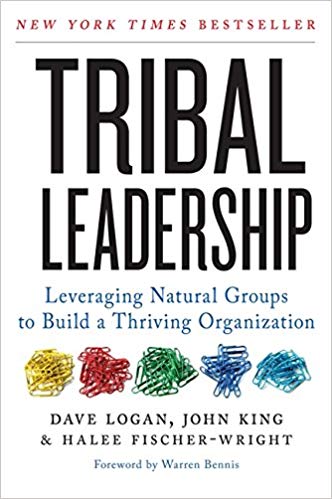
About the Book: No matter where you work and how your company is organized, there’s a big chance that, within it, there are already quite a few tribes. Tribal Leadership is not only an analysis of how these tribes develop and evolve but also a handy manual about how to deal with them and use their very tribal nature to maximize the productivity of your company. In other words, instead of bothering with creating cohesive unity, why don’t you save yourself a lot of time and just leverage the groups which naturally form? (Buy the book)
Favorite Quote:
Change the language in the tribe, and you have changed the tribe itself. Share on X3.18 Dave Ramsey – EntreLeadership
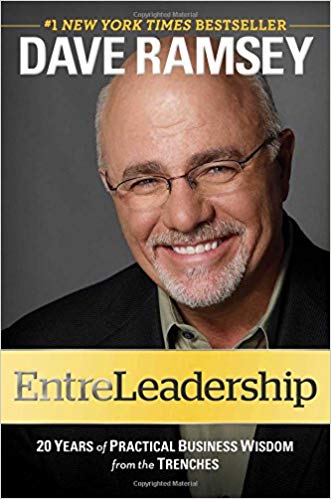
About the Book: According to USA’s favorite financial guru Dave Ramsey, a company is only as strong as its leaders. You can’t expect from a student to grow if he/she has a bad teacher, can’t you? Then why would you expect from your team to get the results if you are not courageous and decisive, inspiring and valued? In EntreLeadership, Ramsey offers a practical, step-by-step manual on how you can become such a leader. And he has 20 years of practical business wisdom to vouch for the applicability of his lessons. (Read a brief summary of the book | Buy the book)
Favorite Quote:
The very things you want from a leader are the very things the people you are leading expect from you. Share on X3.19 Cy Wakeman – Reality-Based Leadership
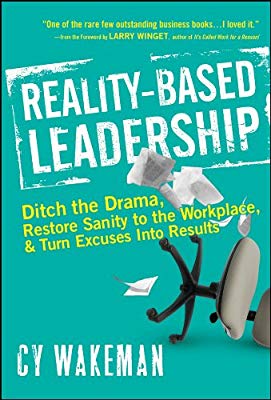
About the Book: Do you know that 7 out of 10 workers think about quitting their jobs on a daily basis? What kind of a leader would ever allow that? In Reality-Based Leadership, Fast Company’s Cy Wakeman teaches you how to “ditch the drama, restore sanity to the workplace and turn excuses into results.” And it all starts with bursting bubbles and facing facts such as the one pointed above. (Read a brief summary of the book | Buy the book)
Favorite Quote:
Drama is ultimately the result of a lack of clear leadership. Share on X3.20 David Cottrell – Monday Morning Leadership
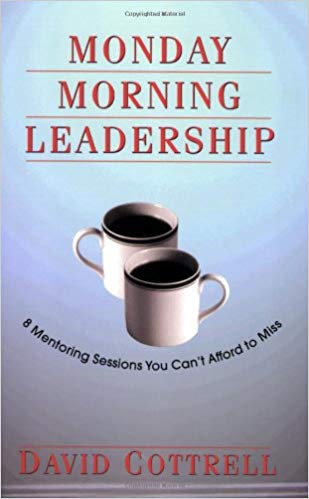
About the Book: Who doesn’t like a good leadership fable? David Cottrell’s Monday Morning Leadership is one such story – about a manager and his wise mentor. As its subtitle suggests, it includes 8 mentoring sessions you can’t afford to miss: 1. making tough decisions; 2. keep the main thing the main thing; 3. keep your stars shining; 4. the ‘do right’ rule; 5. hire tough; 6. do less or work faster; 7. buckets and dippers; and 8. enter the learning zone. (Read a brief summary of the book | Buy the book)
Favorite Quote:
You learn more by reading more. I'm living proof that the more you learn, the more you earn. Share on X4. The “Leadership Strategies and Styles, Tactics and Theories” Shelf
Leadership is not a science; it’s an art. Consequently, there’s no one way to do it; there are many different strategies and styles, different leadership tactics and theories. The following twenty books reveal some of the best-known and most effective ones.
4.1 Jim Collins – Good to Great
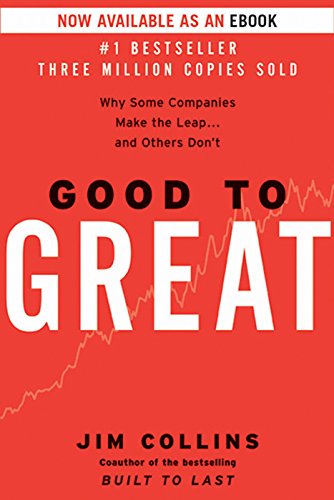
About the Book: Based on a 5-year study which included an in-depth analysis and contrast/compare study of the strategies and practice of 28 different companies, Good to Great is Jim Collins’ attempt to get to the bottom of the causes which separate the great companies from the good ones. And his findings are both surprising and enlightening! Want to become a Level 5 leader – the humble guru who always does what’s best for his company? Read this book and find out how. (Read a brief summary of the book | Buy the book)
Favorite Quote:
Good is the enemy of great. And that is one of the key reasons why we have so little that becomes great. Share on X Good to Great4.2 Simon Sinek – Start with Why
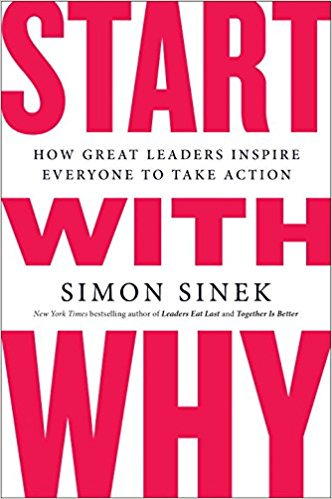
About the Book: As Sun Tzu enlighteningly taught us in The Art of War all the preparation works only if it’s put into practice. In Start with Why, our favorite optimist Simon Sinek shows how it’s not only about the actions of the great leaders themselves, but it’s also about the actions they inspire in the people around. And where does inspiration come from? Well, it’s not in the how – it’s in the why. Because only when you know why you want to be the CEO of a certain company, you’ll know how to run that company. And what to tell those around you to inspire them to act in the right way. (Read a brief summary of the book | Read more about Simon Sinek | Buy the book)
Favorite Quote:
People don’t buy WHAT you do, they buy WHY you do it. Share on X4.3 Simon Sinek – Leaders Eat Last
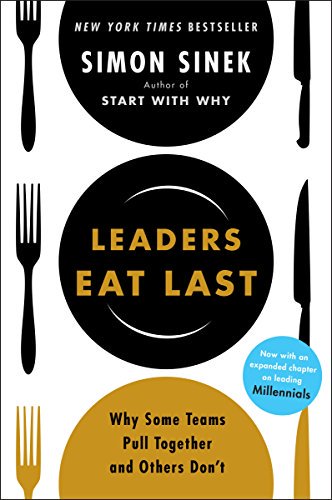
About the Book: If Start with Why is about the why, then Leaders Eat Last is about the how. And, just like many of the books on this list, it’s once again about the how’s of being a good leader; not a Machiavellian one. The latter one is obsolete nowadays, says Sinek here. The good one eats last, and, thus, creates a Circle of Safety, i.e., a group of loyal co-workers and employees who love him and follow him blindly – because they believe his vision. You know: a fellowship. (Read a brief summary of the book | Read more about Simon Sinek | Buy the book)
Favorite Quote:
If your actions inspire others to dream more, learn more, do more and become more, you are a leader. Share on X Leaders Eat Last4.4 Simon Sinek – Why Good Leaders Make You Feel Safe

About the Book: It’s Simon Sinek once again – but, if you know anything about him, you know that it’s once again more than deservedly. This time we’ve opted for a TED Talk of his, in which he redefines leaders as people who make their employees feel safe and comfortable, and, thus, provide them with an environment in which they can develop and flourish and, in time, pay back the trust put in them manifold. (Read a brief summary of the TED Talk | Read more about Simon Sinek | Watch the TED Talk)
Favorite Quote:
If you hire people just because they can do a job, they’ll work for your money. But if you hire people who believe what you believe, they’ll work for you with blood and sweat and tears. Share on X4.5 Dale Carnegie – How to Win Friends and Influence People
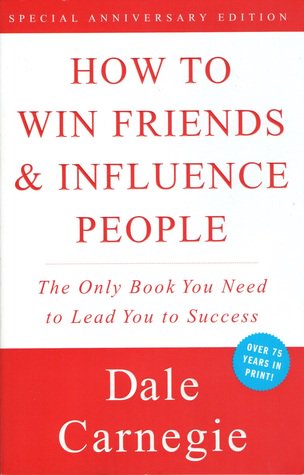
About the Book: According to Dale Carnegie’s How to Win Friends and Influence People – one of the most influential books ever – people are egotistical and think they know everything when they actually know little. His advice: use this your benefit. A combination of charm and the right number of compliments can turn self-dubbed lions into hand-eating sparrows. And the best part: they’ll think they lead you whilst you’re pulling the strings! (Read a brief summary of the book | Buy the book)
Favorite Quote:
It isn't what you have or who you are or where you are or what you are doing that makes you happy or unhappy. It is what you think about it. Share on X How to Win Friends and Influence People4.6 Adam Grant – Originals
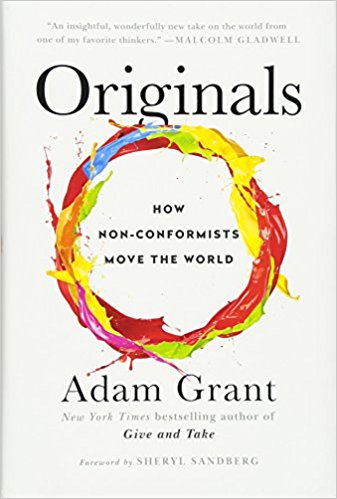
About the Book: If you want to be the leader of the pack, you have to be someone who doesn’t belong in the pack. And in Originals, Adam Grant teaches you how – and why – you must be different. For the sake of humanity. The conformists believe in the holiness of the status quo. The originals try to disrupt it. In which group do you think the good leaders belong (Read a brief summary of the book | Buy the book)
Favorite Quote:
Being original doesn’t require being first. It just means being different and better. Share on X4.7 L. David Marquet – Turn the Ship Around
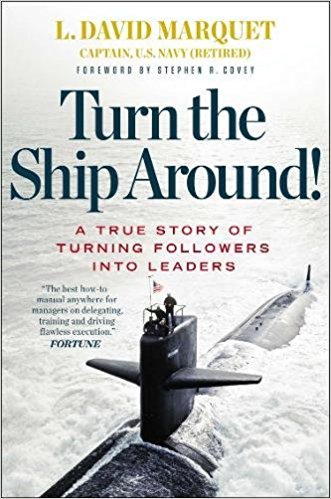
About the Book: L. David Marquet takes Simon Sinek’s advice and raises it by one! Why not, he says, instead of creating a nice little camaraderie of colleagues/friends who follow you for the right reasons, turning your subordinates into leaders just like you! Bearing in mind the fact that Marquet is a former U.S. Navy captain, this may not seem like such a wise idea. However, as he explicates in Turn the Ship Around, it more than works! In fact, it’s what transformed the crew of the USS Santa Fe submarine from “worst to best.” Think operating your company is harder than captaining a submarine? (Read a brief summary of the book | Buy the book)
Favorite Quote:
My definition of leadership is this: Leadership is communicating to people their worth and potential so clearly that they are inspired to see it in themselves. Share on X4.8 Patrick Lencioni – The Five Dysfunctions of a Team
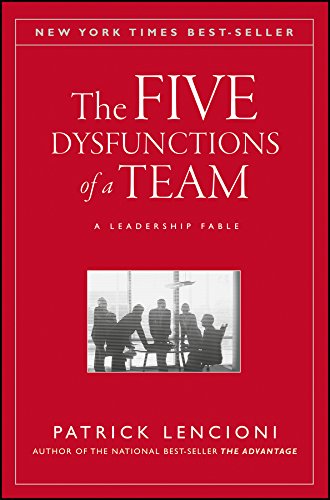
About the Book: Subtitled “a leadership fable,” The Five Dysfunctions of a Team is, arguably, Patrick Lencioni’s best and, justly, most celebrated book. By listing the five main problems a team can face – absence of trust, fear of conflict, lack of commitment, avoidance of accountability, and inattention to results – the story teaches leaders how to tackle them and how to turn the I’s of their employees into a collective “We.” (Read a brief summary of the book | Buy the book)
Favorite Quote:
Great teams do not hold back with one another. They are unafraid to air their dirty laundry. They admit their mistakes, their weaknesses, and their concerns without fear of reprisal. Share on X4.9 Patrick Lencioni – The Ideal Team Player
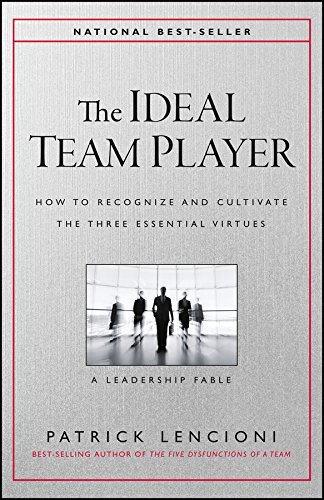
About the Book: More or less, a sequel to The Five Dysfunctions of a Team, The Ideal Team Player is yet another leadership fable by Patrick Lencioni. In it, the author attempts not only to teach how leaders can recognize the three essential virtues of team players but also how they can cultivate them. In case you’re wondering, these are humility, hunger, and people smarts. Of course, that’s merely the beginning of the book. (Read a brief summary of the book | Buy the book)
Favorite Quote:
Humility isn't thinking less of yourself, but thinking of yourself less. Share on X4.10 Jocko Willink and Leif Babin – Extreme Ownership
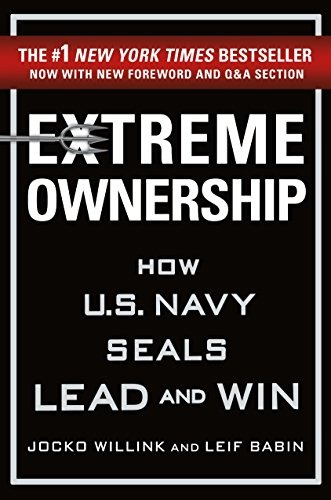
About the Book: Jocko Willink and Leif Babin are decorated Navy SEAL officers and commanders of the SEAL Team Three’s Task Unit bruisers during the bloody Second Battle of Ramadi. In Extreme Ownership, they share their war experiences and explain how you should apply them in the real world. If Navy SEAL tactics worked for them in such exceptional circumstances, then probably they should work for you twice as good in ordinary conditions. Learn how to cover and move or how to prioritize and execute. It already sounds exciting! (Read a brief summary of the book | Buy the book)
Favorite Quote:
The most fundamental and important truths at the heart of Extreme Ownership: there are no bad teams, only bad leaders… Leaders must own everything in their world. There is no one else to blame. Share on X4.11 John Adair – Not Bosses But Leaders
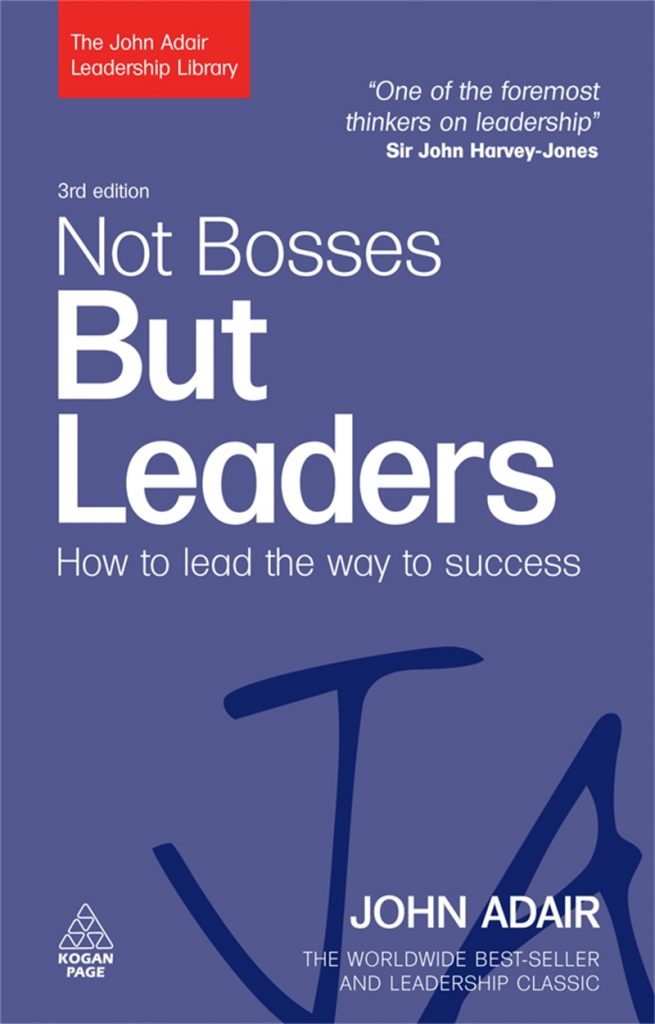
About the Book: Presented once again in the form of a dialogue with a young executive (see 3.1), John Adair’s Not Bosses But Leaders shows that there’s a big difference between being an executive and being a leader. Accessible and straightforward, Not Bosses But Leaders will teach you, in an almost epigrammatic manner, that “leadership is action, not position,” and that “authority flows from the one who knows.” Not only memorable but also highly useful and practical. (Read a brief summary of the book | Buy the book)
Favorite Quote:
Great necessities call forth great leaders. Share on X4.12 The Arbinger Institute – Leadership and Self-Deception
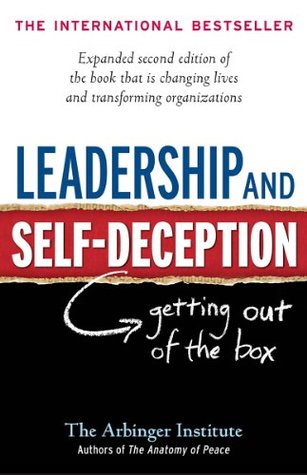
About the Book: Just like Blanchard and Johnson’s One Minute Manager (see 3.7) and Patrick Lencioni’s books (see 4.8 and 4.9), Leadership and Self-Deception is a business fable which reveals how the world of Tom Callum, a newly appointed senior manager at the fictional Zagrum Company, is rocked after a meeting with the company’s executive VP, Bud Jefferson, and a discussion about self-deception. This is not a book merely about leaders; it’s also a book about everyone who feels as if stuck in a box. Interestingly, that’s the first step of getting out of it. (Read a brief summary of the book | Buy the book)
Favorite Quote:
In the box, I’m blind to the truth about myself and others. I’m even blind to my own motivations. Share on X4.13 Ronald A. Heifetz – Leadership Without Easy Answers
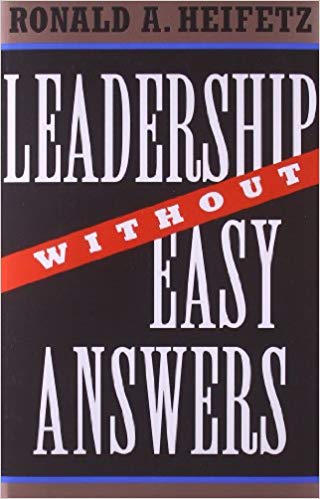
About the Book: It’s easy to lead when everything’s going perfect, but kind of difficult in times of crises. Yet, the real leader is the one who leads well when everything is against him, the one who steers the ship in the right direction, against the grain, and against all the odds. Heifetz’s Leadership Without Easy Answers offers fireproof strategies for leaders in extraordinary and critical times – and they can also be used by activists, managers and workers. Just in case. (Read a brief summary of the book | Buy the book)
Favorite Quote:
Instead of looking for saviors, we should be calling for leadership that will challenge us to face problems for which there are no simple, painless solutions – problems that require us to learn new ways. Share on X4.14 Scott Berkun – The Year Without Pants
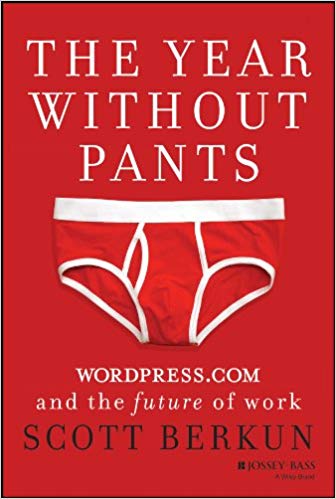
About the Book: Scott Berkun worked for Microsoft for a decade, before leaving the company in 2003 so as to focus on writing or, in his words, to fill his bookshelf with books written by him. Fast forward a decade, and he got a job as a manager at WordPress.com, leading one of its most important teams for a year as part of an investigative assignment he set for himself. What he was able to experience during this year was “the future of work.” It’s a strange one: you can work without pants, and you can be a leader – no matter what your position. (Read a brief summary of the book | Buy the book)
Favorite Quote:
Bureaucracies form when people’s jobs are tied strictly to rules and procedures, rather than the effect those things are supposed to have on the world. Share on X4.15 Samuel B. Bacharach – Get Them on Your Side
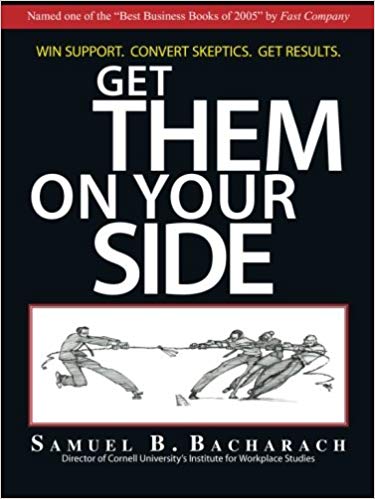
About the Book: “An acknowledged expert in the field of management and organizational behavior,” says the Amazon blurb, “offers advice on building political capital, in a guide for managers searching for ways to gain support and allies for their ideas and initiatives.” The description does this book little justice: Get Them on Your Side is a must-read for anyone who wants to become a leader, especially a political one. (Read a brief summary of the book | Buy the book)
Favorite Quote:
As a politically competent leader, you need to be sensitive to the language that others understand and use. Share on X4.16 David L. Dotlich, Peter C. Cairo, and Stephen Rhinesmith – Head, Heart & Guts
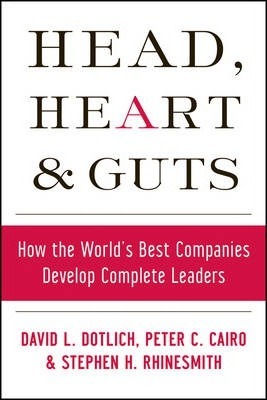
About the Book: “Leadership development,” write Dotlich, Cairo, and Rhinesmith in Head, Heart & Guts, “often doesn’t work because the development process replicates the culture and reinforces prevailing views.” And, as it should be more than expected, leaders are the ones who go against the grain when that is necessary. Head, Heart & Guts reveals how paradoxical the role of a leader is, because, in addition to being able to work within the confines of conventional strategies, he also needs to empathize with his workers and be daring enough to take risks – all at the same time! (Read a brief summary of the book | Buy the book)
Favorite Quote:
Complex times require complex leaders. Share on X4.17 David L. Dotlich, Peter C. Cairo, and Stephen Rhinesmith – Leading in Times of Crisis
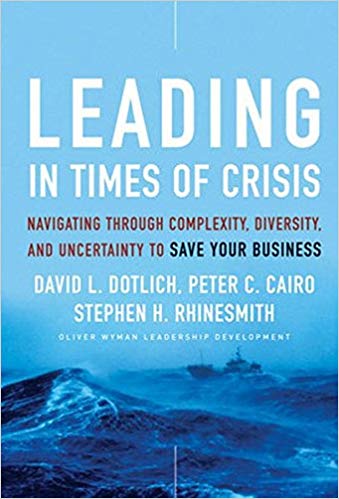
sAbout the Book: “Building on the solid base of their book Head, Heart, and Guts,” notes John Naisbitt, “Dotlich, Cairo, and Rhinesmith lay out the ways to become the kind of leader needed to navigate through today’s complexities and uncertainties. Leading in Times of Crisis is a necessary guidebook to survive and thrive in the global perfect storm.” We have nothing to add
Favorite Quote:
Whole leaders handle complexity well because they use a framework or filter to sort through existing data and are not paralyzed by having less information than they need or want. Share on X4.18 David L. Dotlich and Peter C. Cairo – Why CEOs Fail
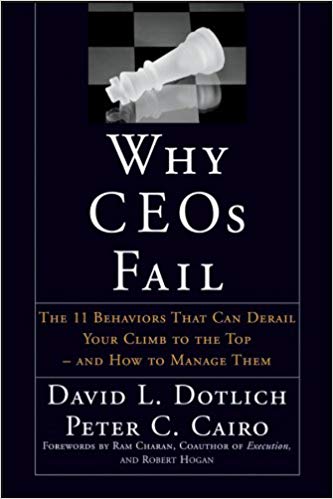
About the Book: There are so many books which aim to teach you what you should do to become a good leader; David L. Dotlich and Peter C. Cairo’s third and final entry on our list, Why CEOs Fail, is one which teaches you what you shouldn’t do. The great part is that this book doesn’t only list the “11 behaviors that can derail your climb to the top” (arrogance, melodrama, volatility, excessive caution, habitual distrust, aloofness, mischievousness, eccentricity, passive resistance, perfectionism, and eagerness to please), but also offers advice on how to manage each of them. (Read a brief summary of the book | Buy the book)
Favorite Quote:
One of the toughest balancing acts in the leadership business is between confidence and too much confidence. Share on X4.19 Tim Irwin – Derailed
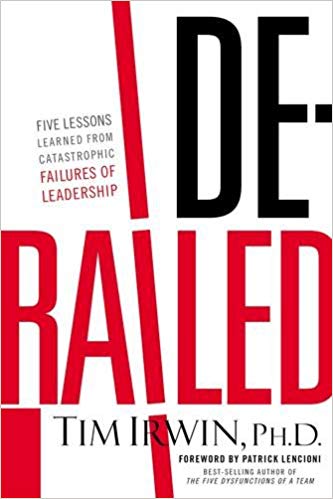
About the Book: Yet another book about the don’ts of leadership: Tim Irwin’s magnificent Derailed is an analysis of the collapse of six high-profile CEOs (Robert Nardelli, Carly Fiorina, Durk Jager, Steven Heyer, Frank Raines, and Dick Fuld) and an elucidation of the five lessons you can learn from these catastrophic failures of leadership. “This is not just a book for CEOs,” writes Michael Hyatt, a CEO himself. “It is for anyone who serves in a leadership capacity―pastors, teachers, government officials, and even mid-level managers in corporations. Not only is this a book you should read; in my opinion, it’s a book you can’t afford not to read. There is simply too much at stake.” (Read a brief summary of the book | Buy the book)
Favorite Quote:
Leaders must set direction, gain alignment among diverse constituencies, risk change, build high-performing teams, achieve results, go the extra mile and endure ungodly stress. Share on X4.20 Ram Charan – Know-How
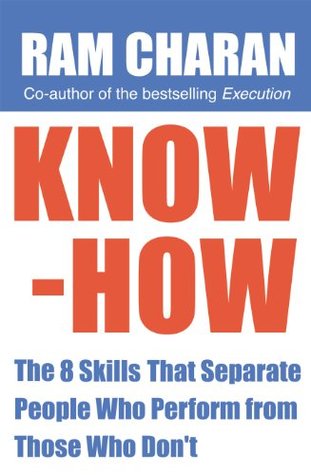
About the Book: Ram Charan, one of the authors of The Leadership Pipeline (see 1.14) is back again with Know-How, a “brilliant, immensely practical, and comprehensive” book (Stephen R. Covey, see 1.2) which identifies and examines the 8 skills that separate people who perform from those who don’t. “Leadership is a messy phenomenon,” writes Charan, but the good news is that “leaders are made, not born.” Here’s a book which can teach you how. (Read a brief summary of the book | Buy the book)
Favorite Quote:
Goals are set at 50,000 feet. Priorities are set at ground level. Share on X5. The “Let the Ladies Lead” Shelf
Who says that it’s a man’s world? Despite all the discrimination and the ever-widening gender pay gap, these ladies made it to the top! And all of them want to share what they’ve learned so that other women could follow.
5.1 Sheryl Sandberg – Lean In
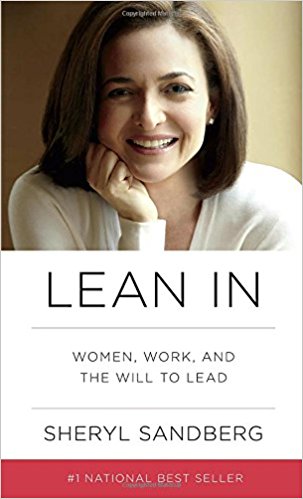
About the Book: Sheryl Sandberg was a vice president for online sales at Google and the first woman to serve in Facebook’s board of directors; currently, she is Facebook’s COO. Also, she is a billionaire, a Time 100 person, and the founder of Leanin.org, an organization dedicated “to offering women the ongoing inspiration and support to help them achieve their goals.” Now, if she can’t tell you a thing or two about gender equality – who can? Ladies of the world – unite! And take back what you’ve been unjustly deprived of for millennia! (Read a brief summary of the book | Buy the book)
Favorite Quote:
In the future, there will be no female leaders. There will just be leaders. Share on X Lean In5.2 Sophia Amoruso – #GIRLBOSS

About the Book: In less than a decade, Sophia Amoruso went from being a petty thief and a high-school dropout to founding Nasty Gal, a woman’s fashion retailer. In #GIRLBOSS Amoruso tells her story, which was interesting enough to inspire Netflix to turn it into a TV show. Since #GIRLBOSS was published, Nasty Gal filed for bankruptcy, but Amoruso has since founded Girlboss Media, a successful company which creates podcast and videos aimed at a female audience. Great leaders know how to fail. (Read a brief summary of the book | Buy the book)
Favorite Quote:
You don’t get what you don’t ask for. Share on X5.3 Brené Brown – Dare to Lead
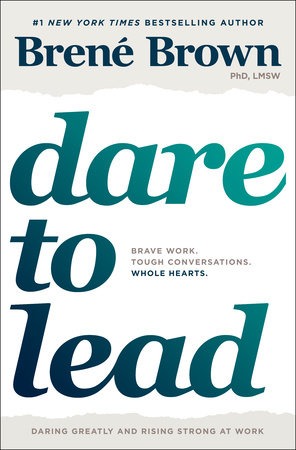
About the Book: A TED superstar, Brené Brown is widely considered one of the foremost experts on understudied subjects such as vulnerability and humility. In Dare to Lead she repackages her findings in a business edition, teaching all the leaders out there to be brave to be vulnerable and to build a culture of trust in their companies through BRAVING. Yup, that’s an acronym. (Read a brief summary of the book | Buy the book)
Favorite Quote:
I define a leader as anyone who takes responsibility for finding the potential in people and processes, and who has the courage to develop that potential. Share on X5.4 Liz Wiseman – Rookie Smarts
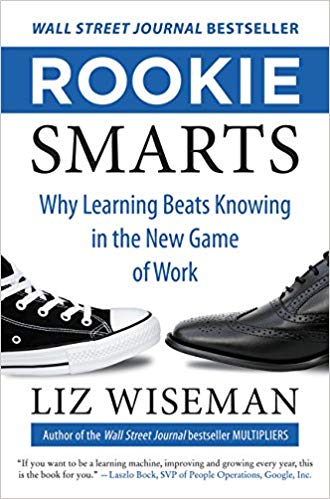
About the Book: Liz Wiseman is – we just can’t get enough of this pun! – a very wise woman. The president of the Wiseman Group, you can often find her name on the Thinkers50 list of leading management and leadership thinkers of the world (#35 on the last one). And you don’t get to be on that list if you are a conventional thinker. Wiseman is not: in Rookie Smarts, she shows why “learning beats knowing in the new game of work” and why leaders must, paradoxically, go back to basics and their rookie smarts if they want to thrive and succeed. (Read a brief summary of the book | Buy the book)
Favorite Quote:
Wise leaders leverage the rookie smarts on their team… because of the value rookies bring to the table: new practices, expert networks, agility, tireless improvisation, and a greater sense of ownership. Share on X5.5 Blythe J. McGarvie – Fit In, Stand Out
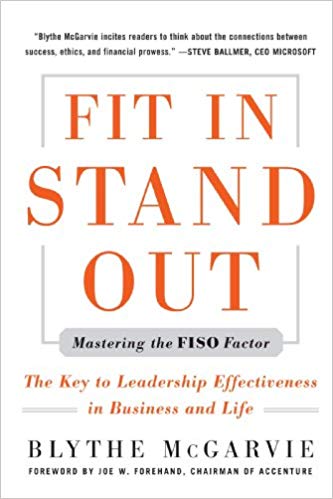
About the Book: You may think the title – usually abbreviated to FISO – is a sort of a paradox, but, according to Blythe J. McGarvie, it is precisely what all successful leaders are capable of doing. They, she writes “must both fit in and stand out, and they must understand how to anticipate and control the interplay between the two forces.” If you want to become a great FISO leader – then this is undoubtedly the best book on the subject. (Read a brief summary of the book | Buy the book)
Favorite Quote:
The best leadership decisions have the clarity of white light, but if you could view them through a prism, you would see that many of them are actually composed of a range of perspectives. Share on X5.6 Judith Humphrey – Taking the Stage
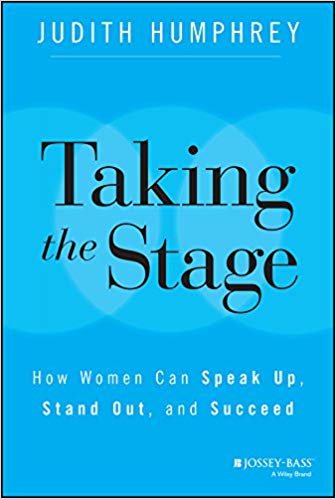
About the Book: According to Judith Humphrey, founder of the first Canadian leadership communication firm, 9 out of 10 women who seek leadership advice from her suffer from the Impostor Syndrome, i.e., they feel as if they’re not worthy of their careers. Taking the Stage aims to change that, educating women how to speak up, stand out, and succeed. (Read a brief summary of the book | Buy the book)
Favorite Quote:
Taking the Stage is a metaphor for all the ways you can be your own best champion by finding compelling ways to express yourself. Share on X5.7 Herminia Ibarra – Act Like a Leader, Think Like a Leader
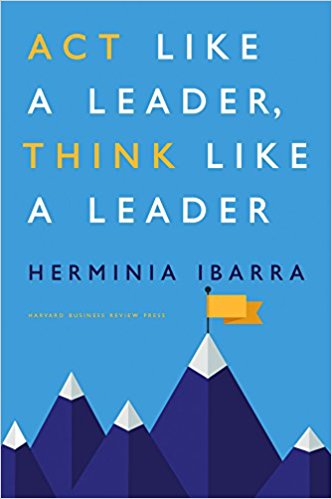
About the Book: Enough with the insights: Herminia Ibarra is here to share with you some unconventional ‘outsights’ about leadership! “In this terrific book,” writes Daniel H. Pink (see 1.10), “Herminia Ibarra… reframes the leader’s quest as a process of looking outward, rather than inward, for direction, development and opportunity. Her conclusions – her ‘outsights’ – come from careful observation and current research and include smart, practical suggestions for expanding your leadership opportunities.” (Buy the book)
Favorite Quote:
The paradox of change is that the only way to alter the way we think is by doing the very things our habitual thinking keeps us from doing. Share on X5.8 Laura Empson – Leading Professionals

About the Book: Based on Laura Empson’s scholarly research and interviews with over 500 leaders, Leading Professionals examines “the complex power dynamics and interpersonal politics that lie at the heart of leadership in professional organizations.” In addition to offering you a peek behind the curtains of notoriously private organizations (banks, law firms, consulting corporations), Leading Professionals also identifies how and why some of their leaders succeed, and others fail. A landmark study. (Read a brief summary of the book | Buy the book)
Favorite Quote:
In a professional organization, the so-called greater good is simply the interests of the collective as defined by its leaders at a particular point in time. Share on X5.9 Joelle K. Jay – The Inner Edge
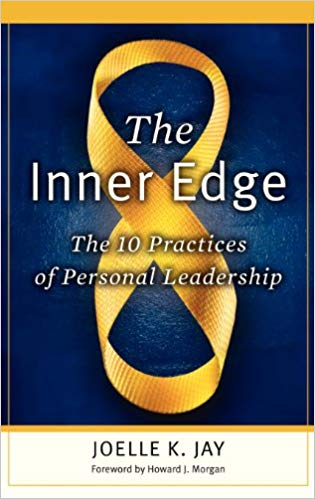
About the Book: “You don’t become a leader because someone else says you are,” writes Joelle K. Jay in The Inner Edge. “You become a leader because you embrace leadership for yourself.” This book teaches you the 10 practices of personal leadership: get clarity; find focus; take action; tap into your brilliance; feel fulfillment; maximize your time; build your team; keep learning; see possibility; and do all of that – at once! (Read a brief summary of the book | Buy the book)
Favorite Quote:
Be a first-rate version of yourself, not a second-rate version of someone else. Share on X5.10 Mary Beth O’Neill – Executive Coaching with Backbone and Heart
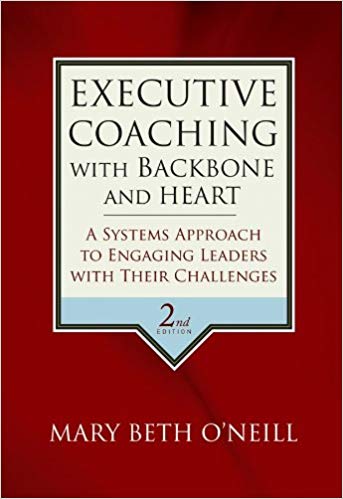
About the Book: According to its subtitle, Executive Coaching with a Backbone and Heart offers “A Systems Approach to Engaging Leaders and Their Challenges.” According to an early review, it more than succeeds, since it “brings form and structure to the art of executive coaching.” Whether you want to learn the basics of executive coaching, or you are interested in the three core principles or its four phases, this is where you’ll find them, defined, outlined, and analyzed in detail. (Read a brief summary of the book | Buy the book)
Favorite Quote:
The essence of executive coaching is helping leaders get unstuck from their dilemmas and assisting them to transfer their learning into results for the organization. Share on X5.11 Blaire Palmer – What’s Wrong with Work
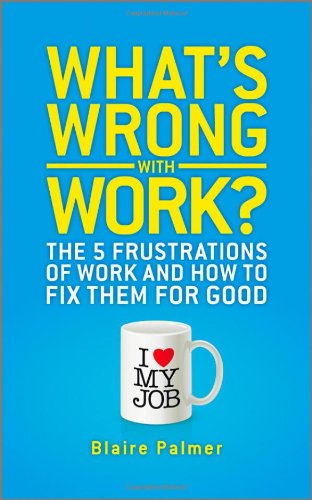
About the Book: Blaire Palmer is one of the most sought-after leadership experts and executive coaches in the UK; and there’s a reason for that: to quote Michael Scott, “she knows the dealio.” In What’s Wrong with Work, she pinpoints the five frustrations of work and teaches you, the would-be leader, how you can fix them for good. And the frustrations? Waste-of-time meetings, mis-leadership, blurred vision, silo mentality, and unfairness. (Read a brief summary of the book | Buy the book)
Favorite Quote:
Leadership (and management) isn’t a science. It is an art. Share on X5.12 Debra A. Benton – How to Think Like a CEO
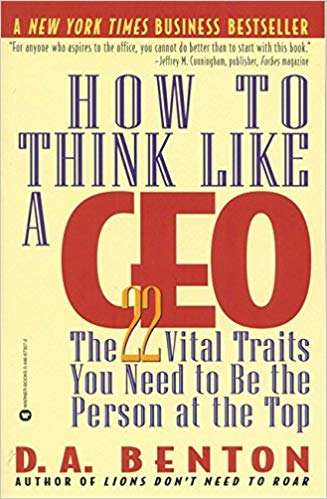
About the Book: According to Edward D. Shonsey (CEO, Northrup King Co.), Debra A. Benton’s How to Think Like a CEO is “a lot like having the other team’s playbook a week before the Super Bowl.” “Every step, every leadership skill, every strategic alliance, every insight, every nuance is here,” adds Harvey Mackay in a glowing review. At almost 500 pages, Debra A. Benton’s How to Think Like a CEO is an exceptional book, both identifying the 22 vital traits that make for a successful leader and advising you on how to acquire them. (Read a brief summary of the book | Buy the book)
Favorite Quote:
Keep going until something stops you, then keep going. Share on X5.13 Suzanne Bates – Speak Like a CEO
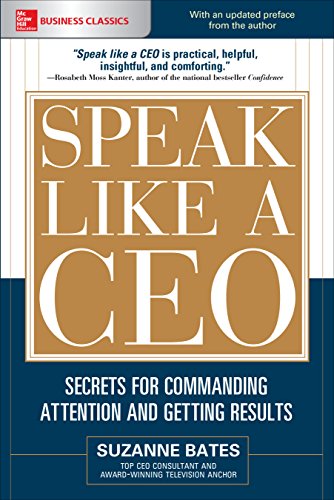
About the Book: Once you’ve learned from Debra Benton to think like a CEO, you’re ready to move on to Suzanne Bates advise on how to speak like one. It’s no secret that great communication skills are what separates leaders from the rest of the bunch, but it is one that rather than being something you have, they are something you can learn. And that’s where Speak Like a CEO comes in handy. As its subtitle suggests, this book will teach you “the secrets for commanding attention and getting results.” (Read a brief summary of the book | Buy the book)
Favorite Quote:
Speaking is a lot like horse racing – you have to get off to a good start. Share on X5.14 Judith E. Glaser – Conversational Intelligence
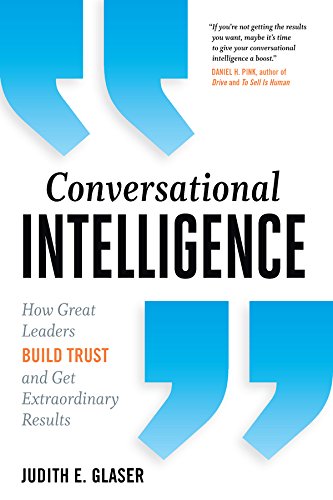
About the Book: Based on neuroscientific research, Judith E. Glaser’s Conversational Intelligence examines “how great leaders build trust and get extraordinary results.” In the book, Glaser reveals that even though there are three levels of conversations – transactional (exchanging data), positional (advocating or inquiring) and transformational (inspiring) – most of us are capable of discussing only on the first two levels. The words of the great leaders, however, are transformational. Use Glaser’s findings to master this art and become one. (Buy the book)
Favorite Quote:
The quality of the conversation drives the nature of the impact. At the moment of contact, conversations have the power to transform our lives. Share on X5.15 Diane Dreher – The Tao of Womanhood

About the Book: Diane Dreher has also written may have written another book with a title more appropriate for a list such as this – The Tao of Personal Leadership – but we firmly believe that this one’s better suited for our “Let the Ladies Lead” shelf. “A spiritual resource that combines the wisdom of the Tao Te Ching with straightforward advice and illuminating anecdotes,” The Tao of Womanhood aims to teach women all over the world how to lead a balanced and fulfilling life, regardless of whether they are stay-at-home moms or CEOs. (Buy the book)
Favorite Quote:
Women have always told each other stories… There are so many stories, so many ways to be a woman today. Share on X5.16 Linda Austin – What’s Holding You Back?
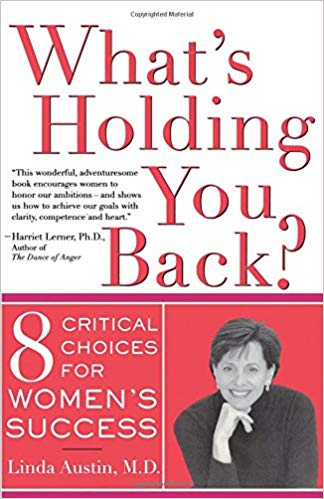
About the Book: Unfortunately, even after thirty years of feminism, there are still very few Angela Merkels and Mary Barras in the world (see 5.19 and 5.20). Why is that? Because, Linda Austin argues, women still suffer from self-imposed psychological barriers. In What’s Holding You Back? she has a look at the 8 critical choices for women’s success: motivation, investing energy, focusing intelligence, shaping work life, competition, tar babies, losing, and brokering power. (Buy the book)
Favorite Quote:
Great artistic works are often based on solving several psychological problems simultaneously. Share on X5.17 Lynn Harris – Unwritten Rules
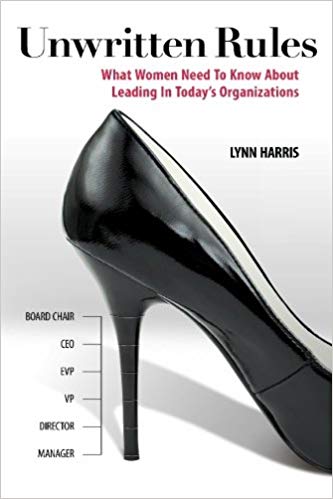
About the Book: The subtitle of Lynn Harris’ 2009 book says it all: “What Women Need to Know About Leading in Today’s Organizations.” Wittily written and smartly structured, Unwritten Rules spends only thirty or so pages to examine the problem of the lack of women at leadership positions, and the next one hundred pages to give a satisfying answer to the question “what does a woman need to do to get around here?” (Buy the book)
Favorite Quote:
A lack of understanding of the organizational environment and its unwritten rules is ignorance that you simply can’t afford. It’s like having a snake in the room with the lights turned off – you never know when you might trip over it or… Share on X5.18 Hillary Clinton – Hard Choices

About the Book: To the alleged dismay of Leslie Knope, Hillary Clinton never got the chance to become the leader of the American people; but as a former Secretary of State and a presidential candidate, she had to make quite a few hard choices; her memoir chronicles most of them, documenting the rise of one of the most prominent female leaders today. Love her or hate her, you’ve got to agree that that sentence is not inaccurate. (Read a brief summary of the book | Buy the book)
Favorite Quote:
Sometimes the best way to achieve real change, in diplomacy and in life, is by building relationships and understanding how and when to use them. Share on X5.19 Matthew Qvortrup – Angela Merkel

About the Book: While this is not the official biography of Angela Merkel – if you’re looking for something like that, have a look at Stefan Kornelius’ same-titled book – it is a newer, and, arguably, a more balanced look at the reign of (as the book’s subtitle explicitly states) “Europe’s Most Influential Leader.” Merkel is so much more than that: via her Wikipedia page, she “has been widely described as the de facto leader of the European Union, the most powerful woman in the world, and the leader of the Free World.” (Buy the book)
Favorite Quote:
Merkel’s deeds shaped the future, creating a new set of political circumstances in politics and economics that everybody had to accept, whether they lived in Berlin, Brussels, Moscow, Athens or the refugee camps across Europe and the… Share on X5.20 Laura Colby – Road to Power
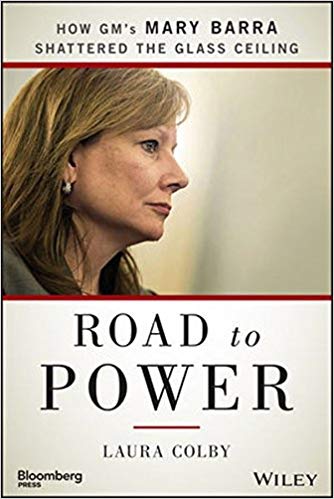
About the Book: You may not know her name, but Mary Barra is, according to the most recent list of “Power Women” by Forbes, the fourth most powerful woman in the world, just behind Merkel, Theresa May and IMF’s Christine Lagarde. Why? Because four years ago, Mary Barra, an electrical engineer by trade, became the first female CEO of a major automaker. Which one? Well, the largest in America, and the second largest in the world, General Motors. It’s even better that her “personal character, choices, and leadership style” is here relayed to the public by another exceptional woman, Bloomberg News’ Laura Colby. (Buy the book)
Favorite Quote:
It took GM more than 100 years to produce a Mary Barra. Share on XThe Wildcard
101. Frank Herbert – Dune
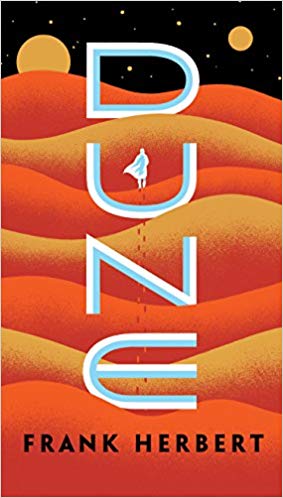
About the Book: You wouldn’t have guessed our wildcard not in a million years, now would you? And yet, we had no doubt whatsoever that we’ll end our list with Frank Herbert’s science fiction saga. Don’t believe us that it can teach you how to be a better leader? It’s time for a quote, then. “Besides giving us an incredibly rich and varied view of an interstellar empire,” writes Michael Arrington, the founder of TechCrunch, “Herbert has a lot to say about leadership, heroism and strategy in crisis.” Still hesitant? Well, allow Tim Ferriss to ease your doubts: “All you need to know about leadership is contained in Dune.” (Buy the book)
Favorite Quote:
Seek freedom and become captive of your desires. Seek discipline and find your liberty. Share on X







